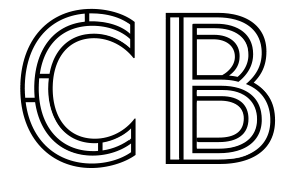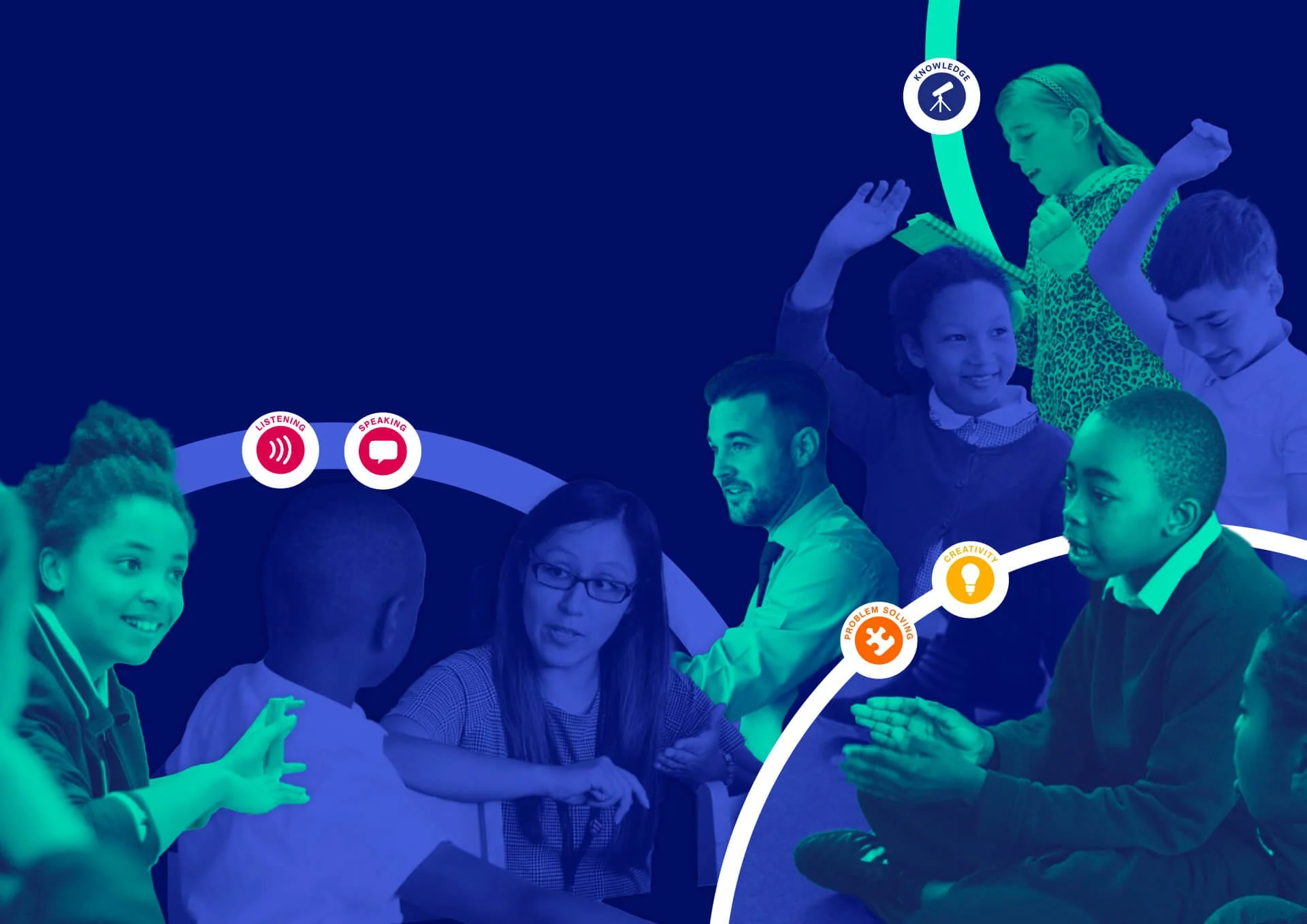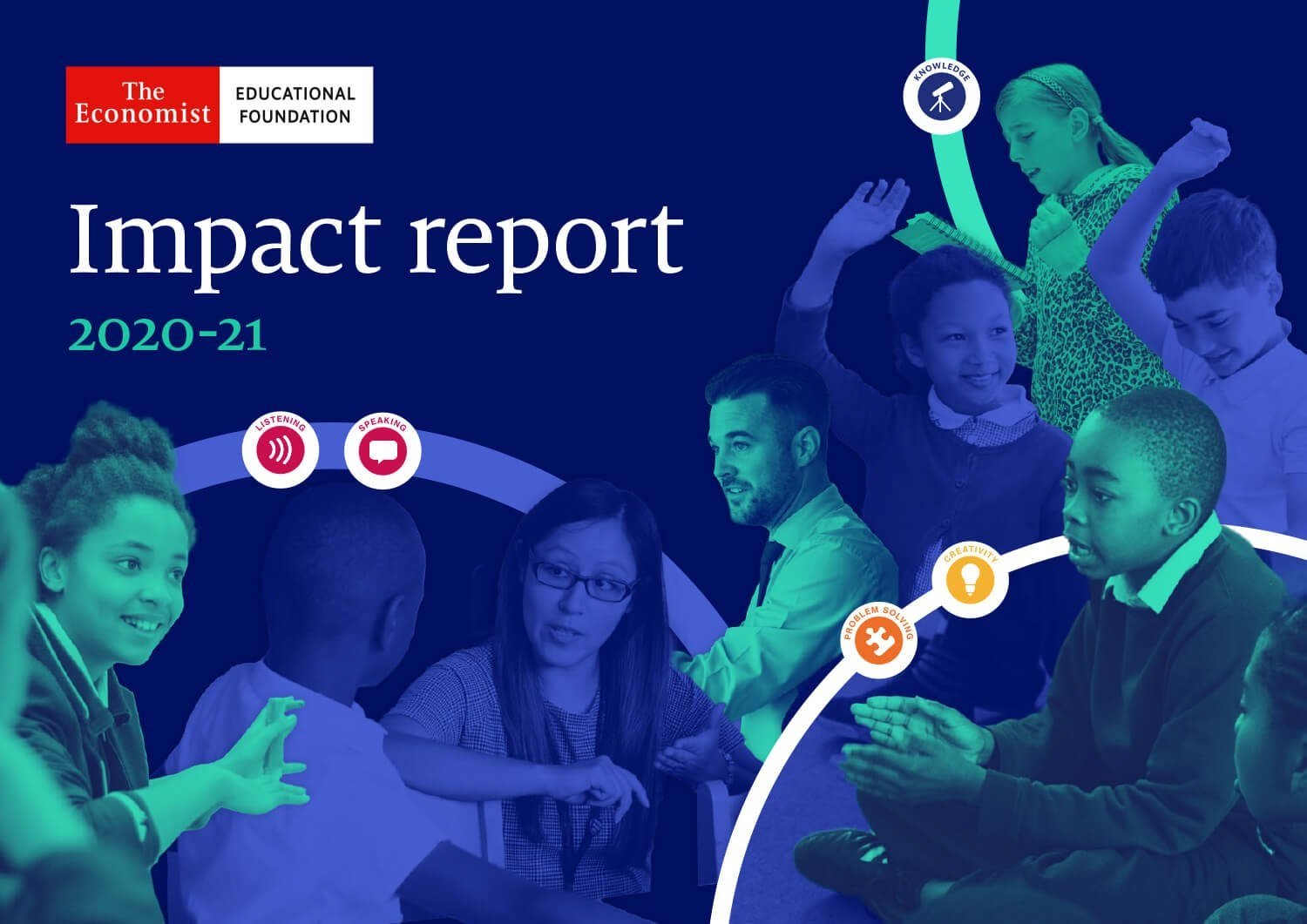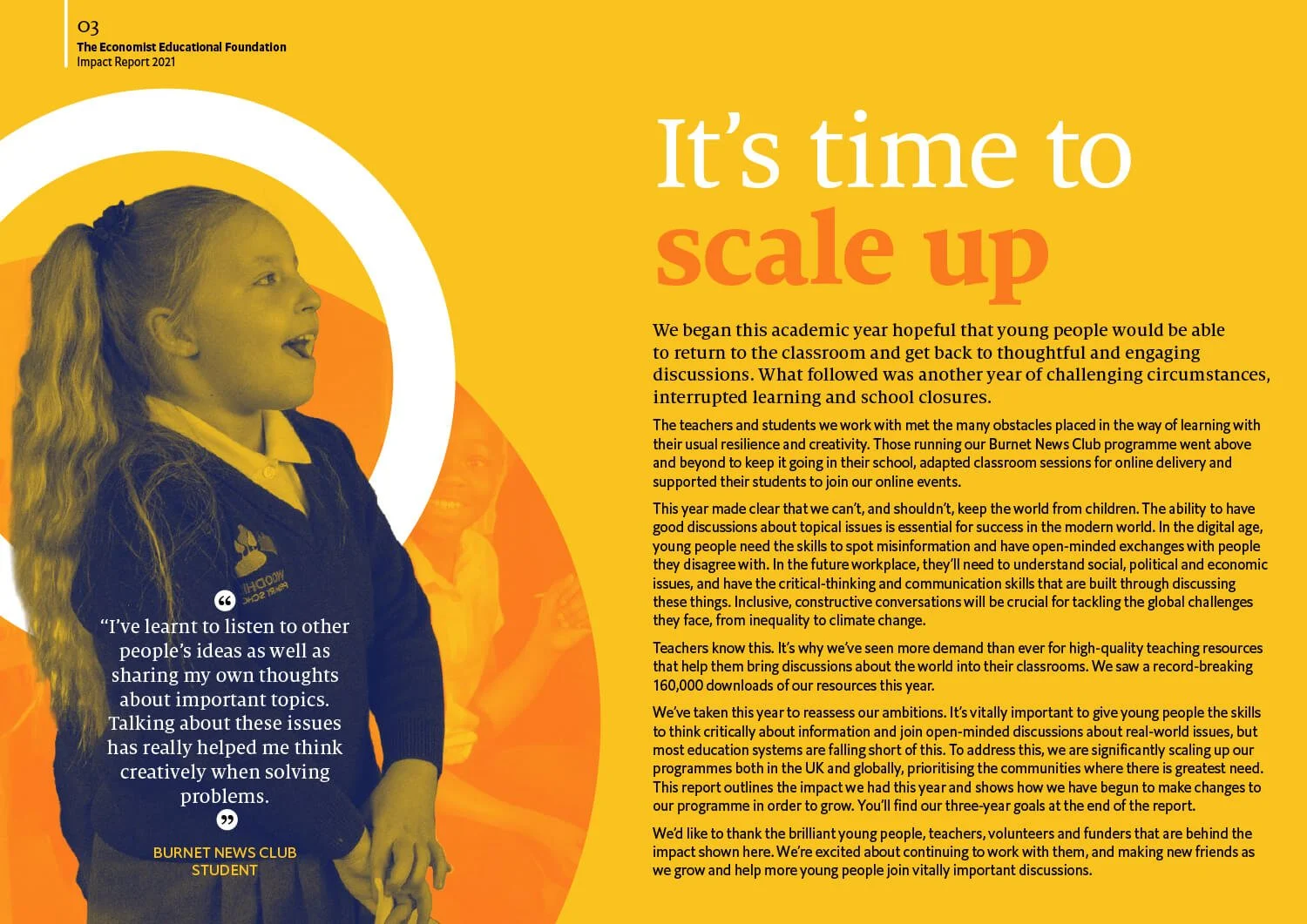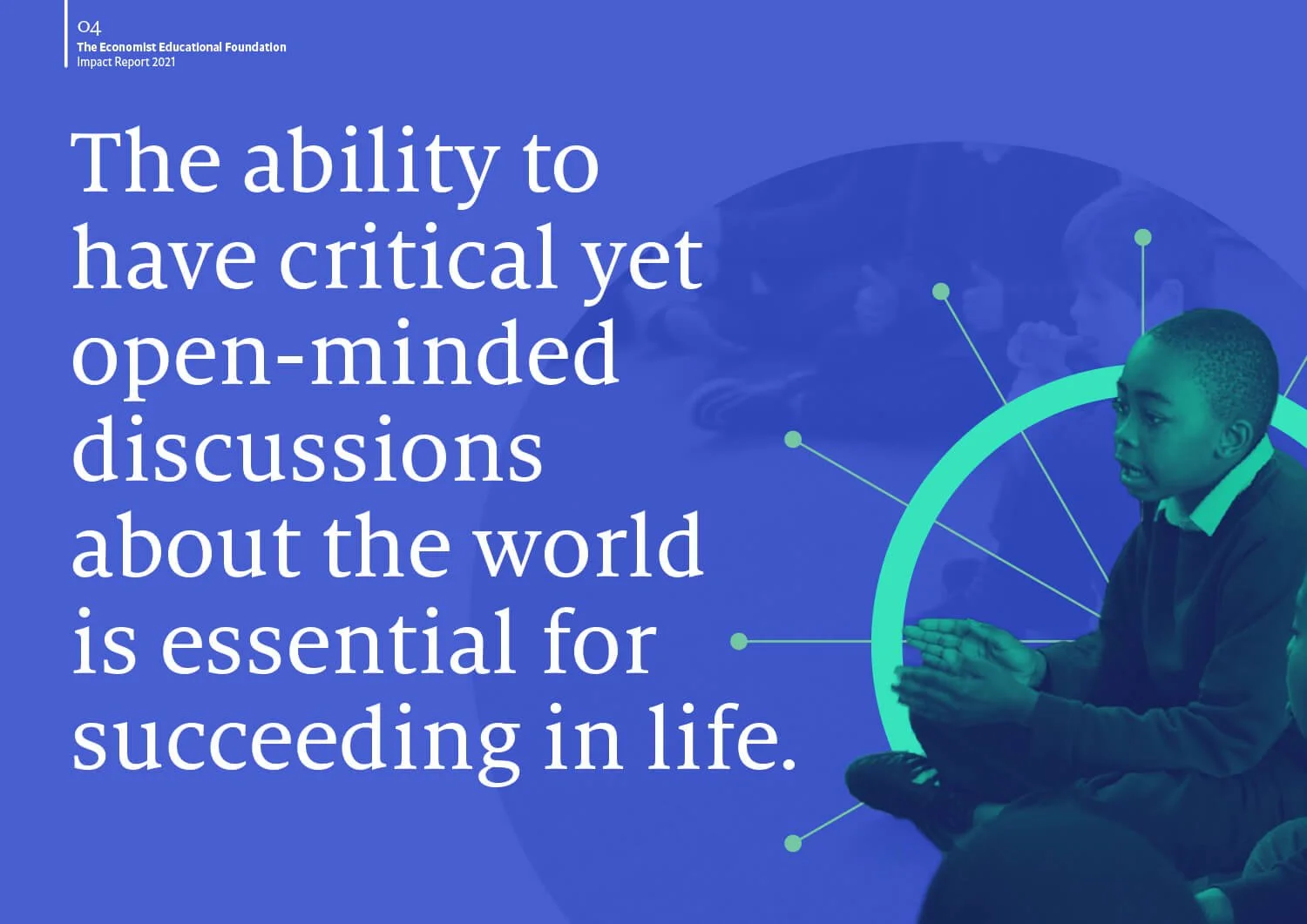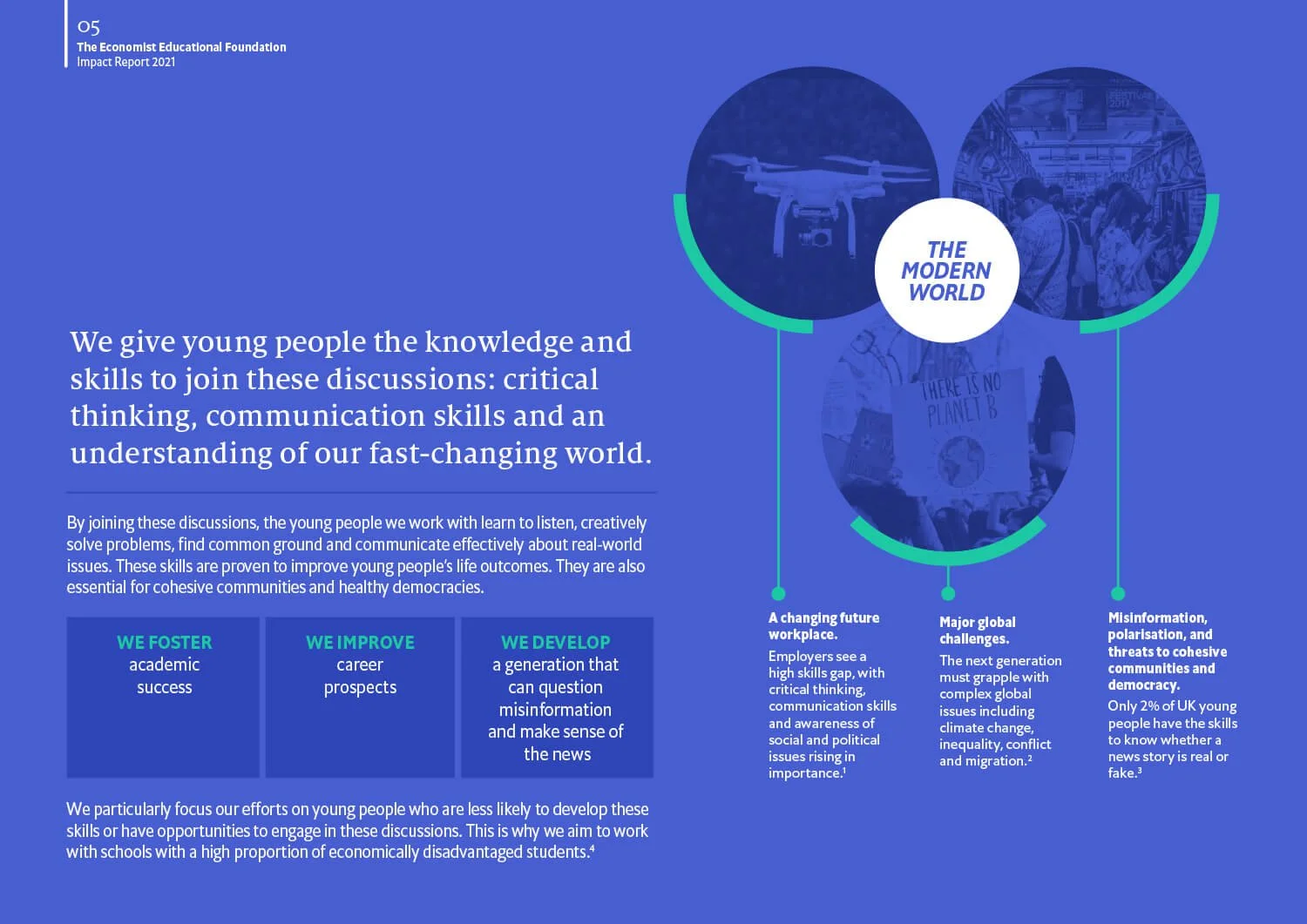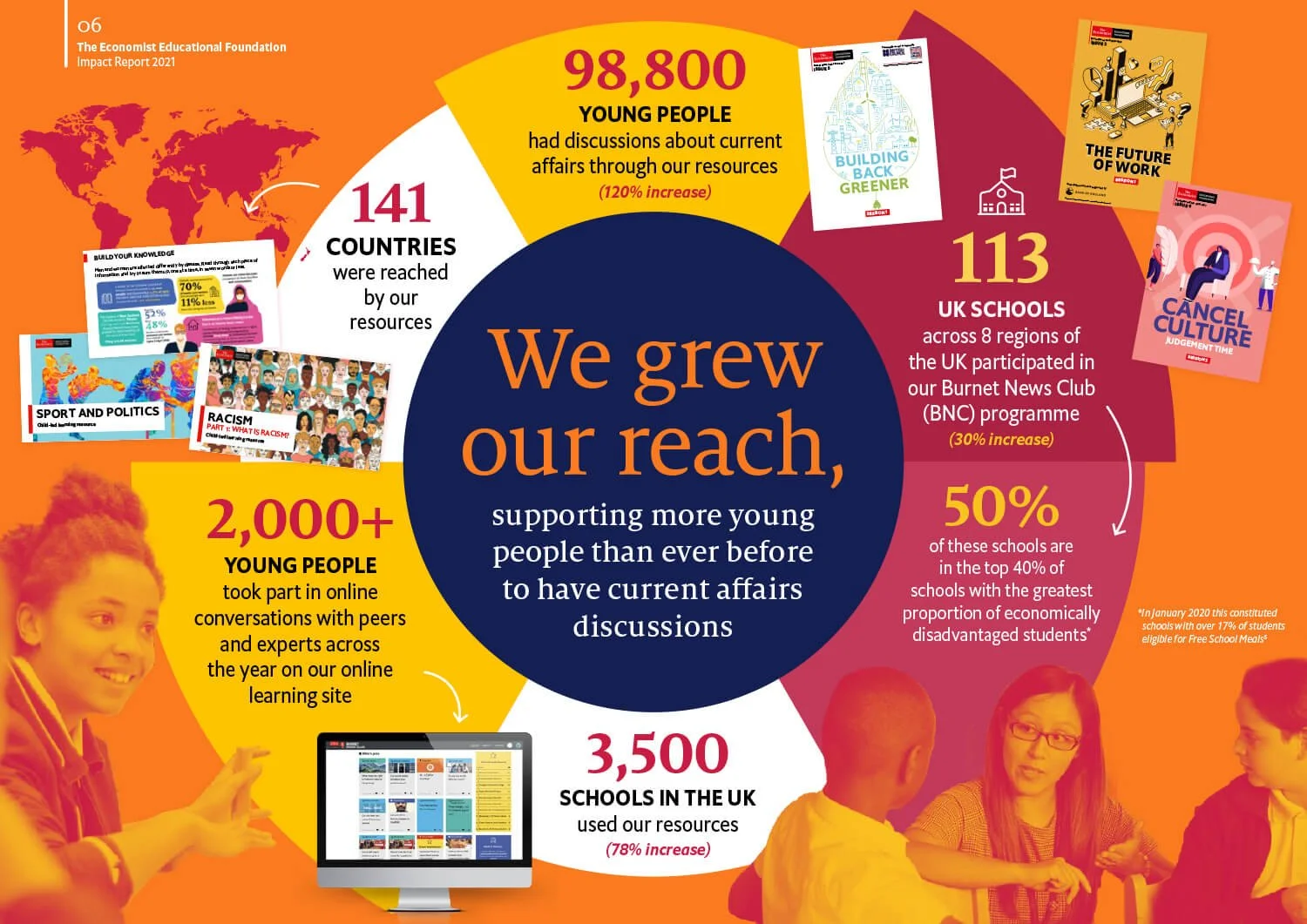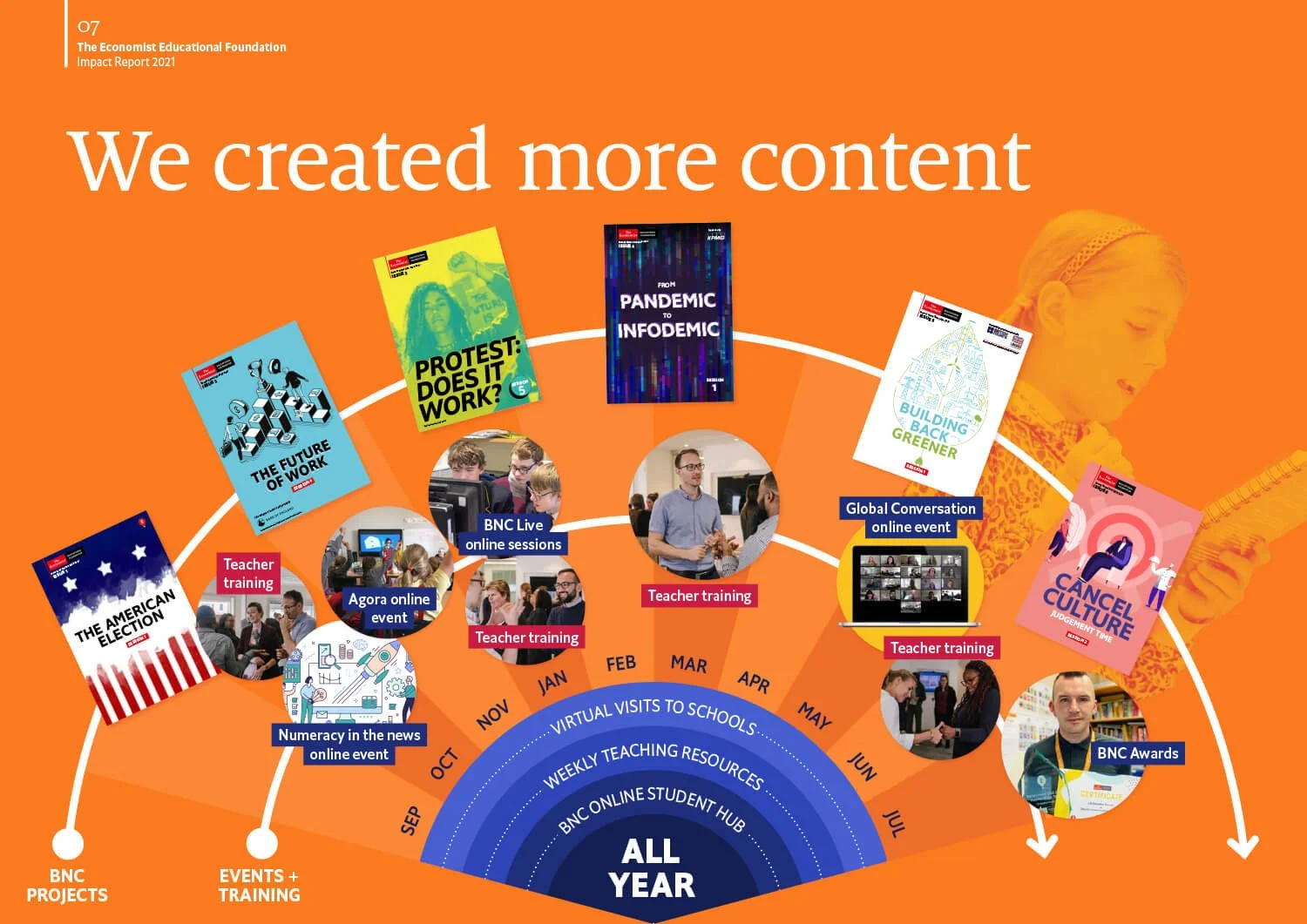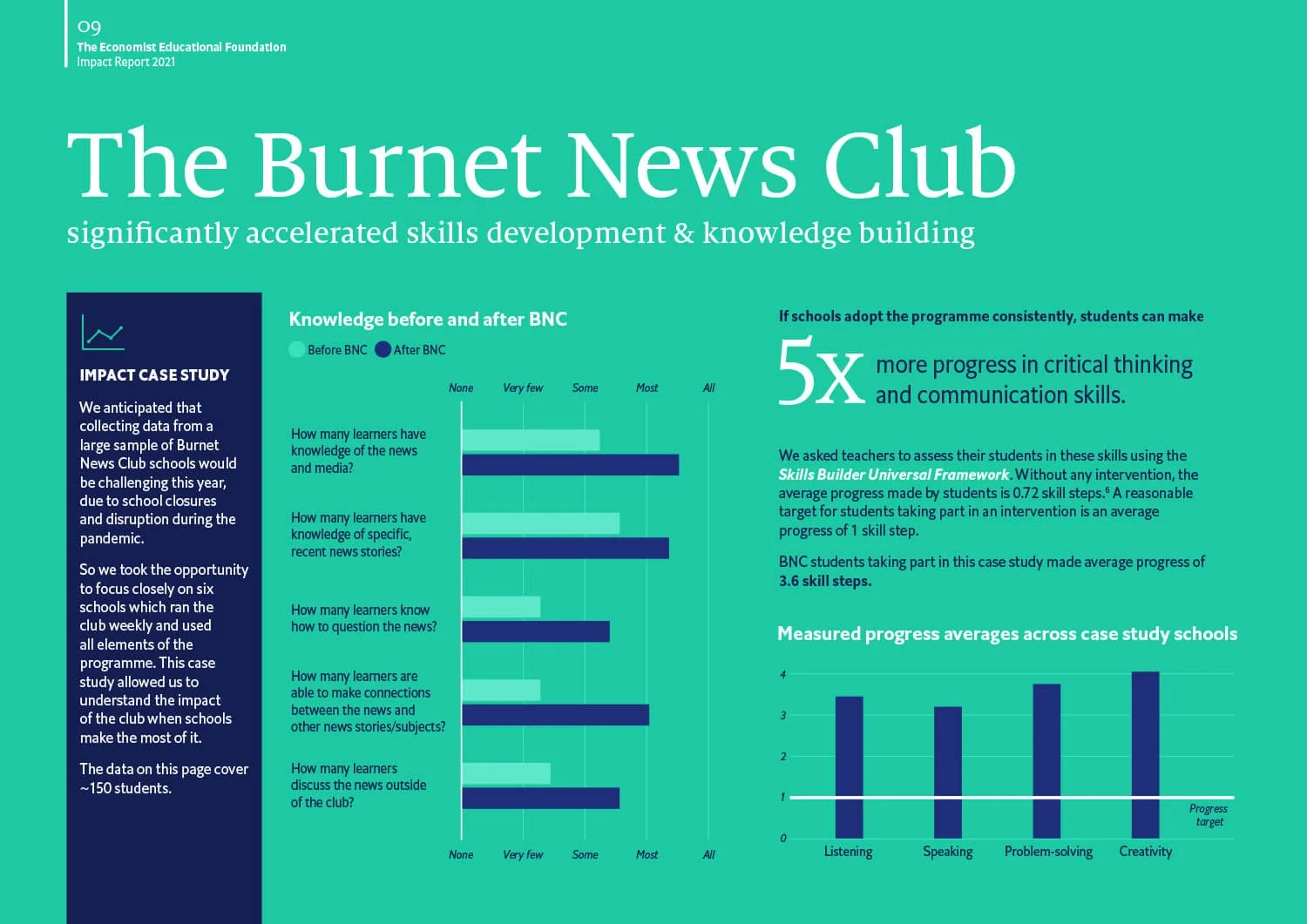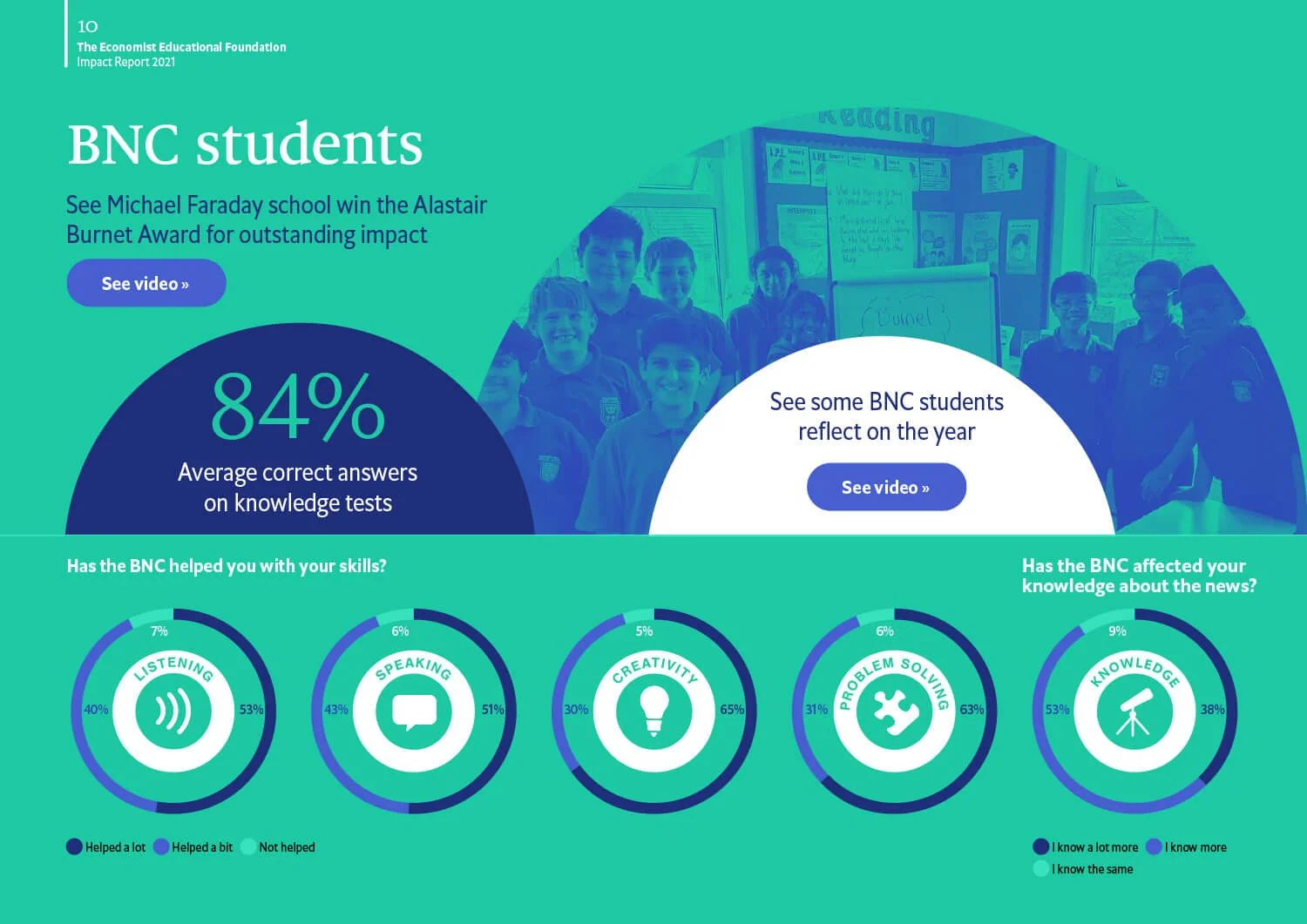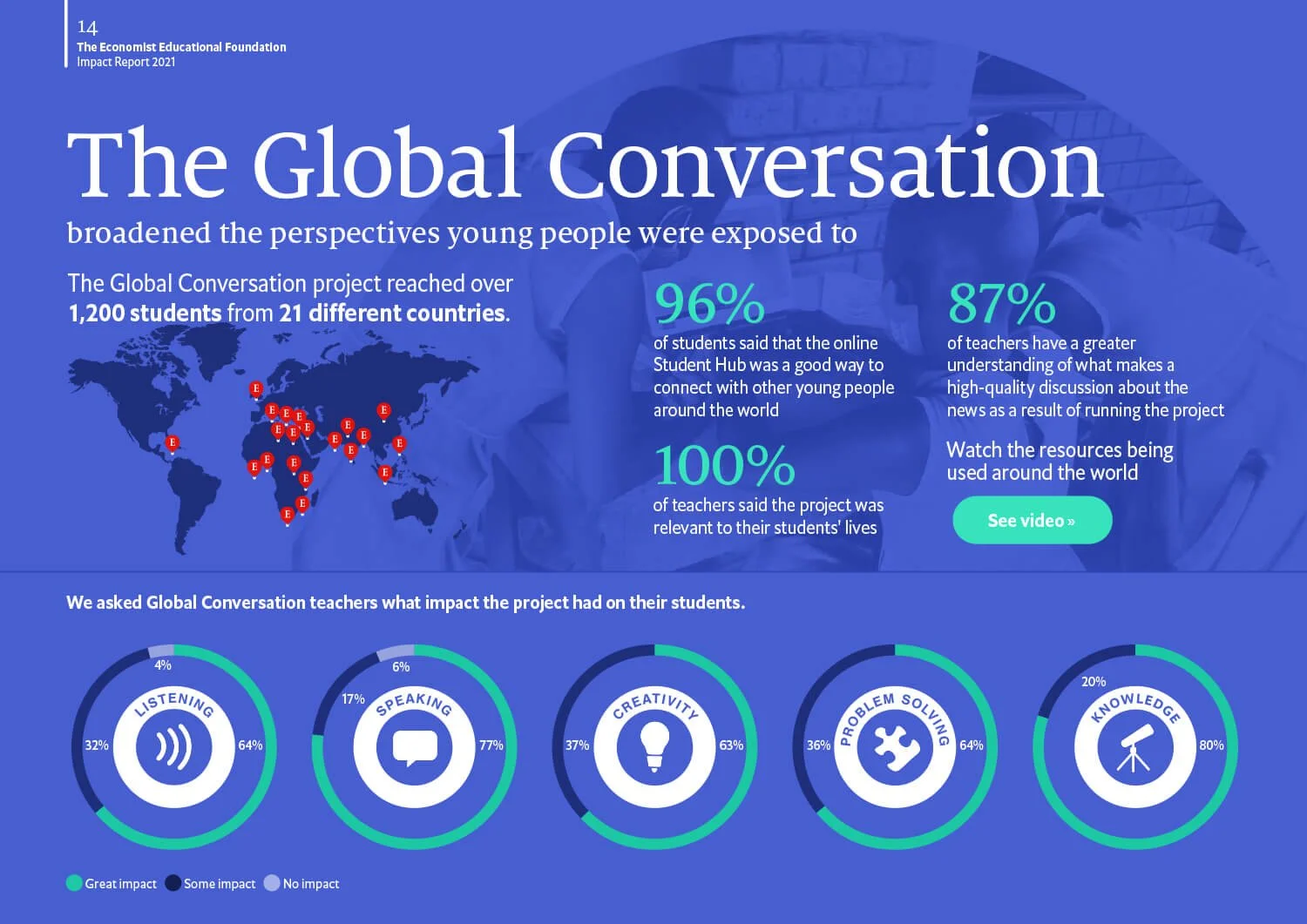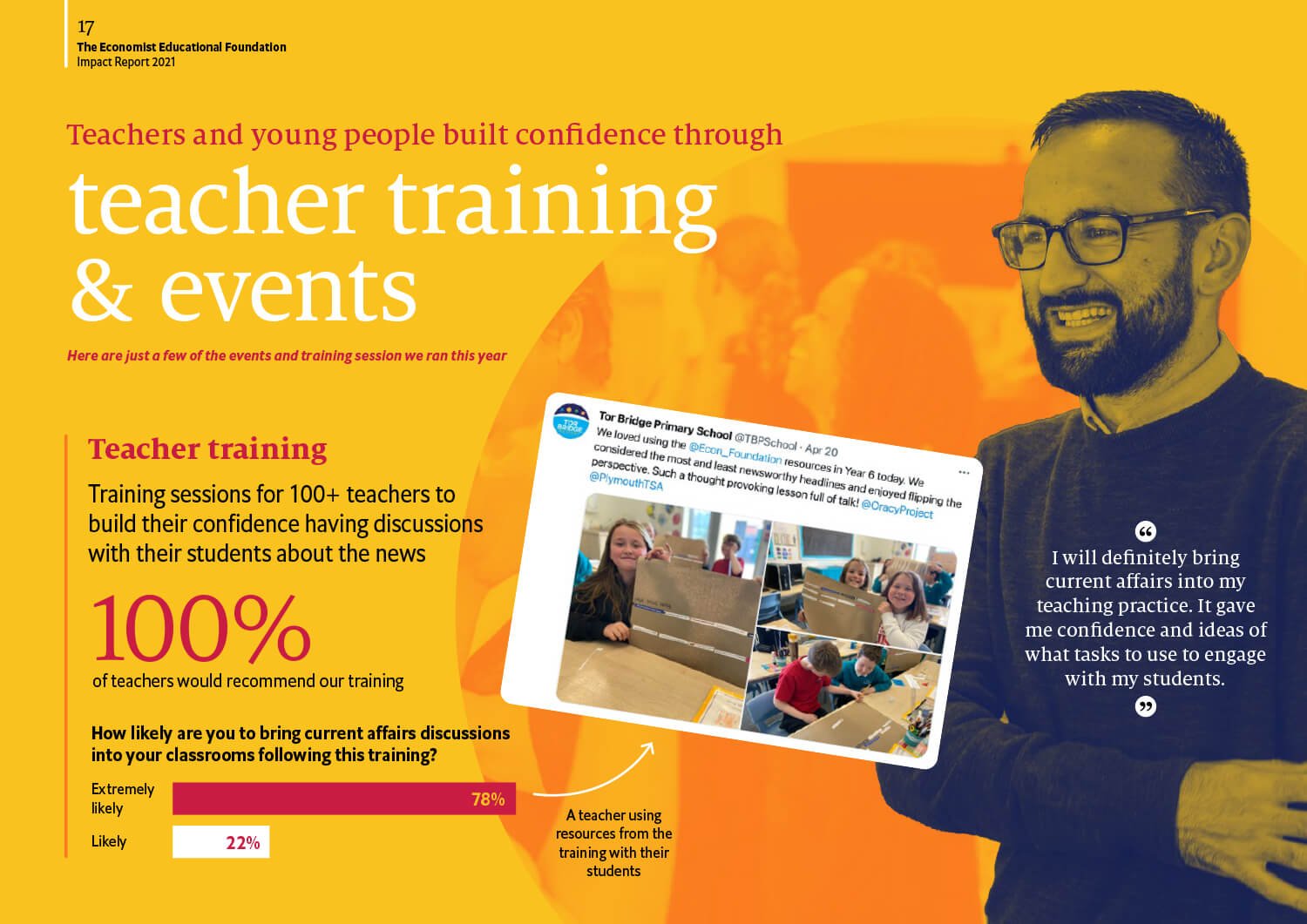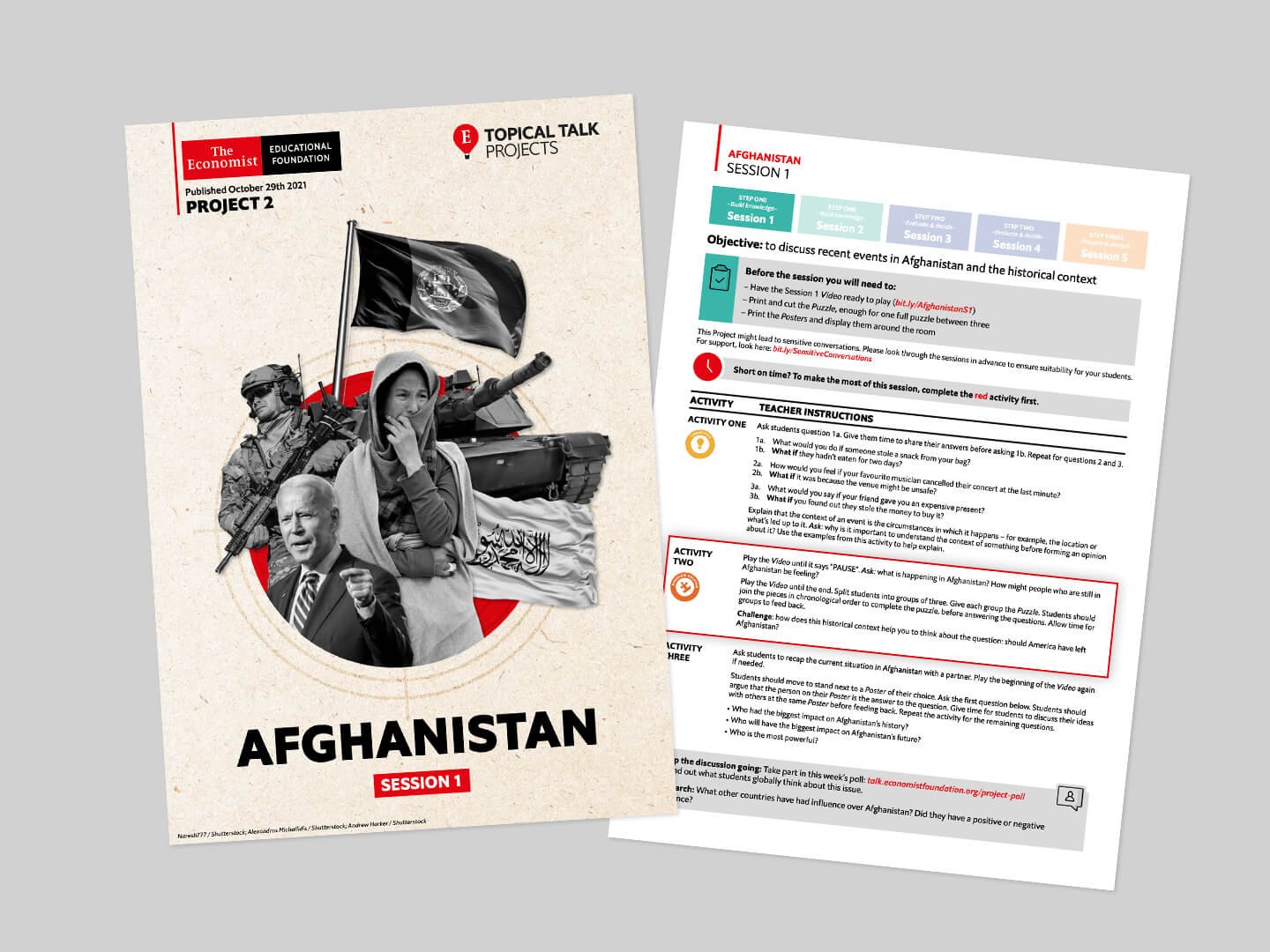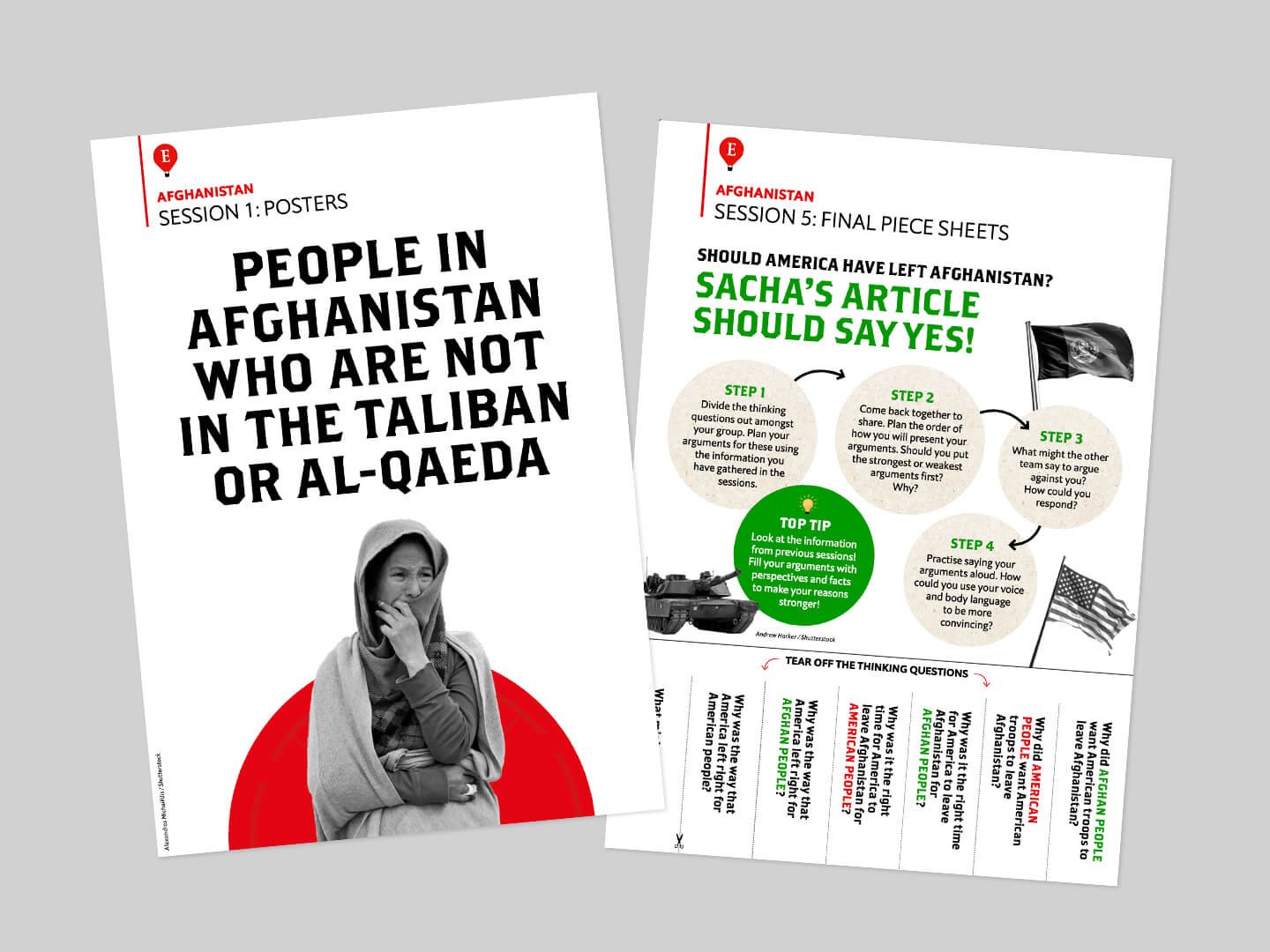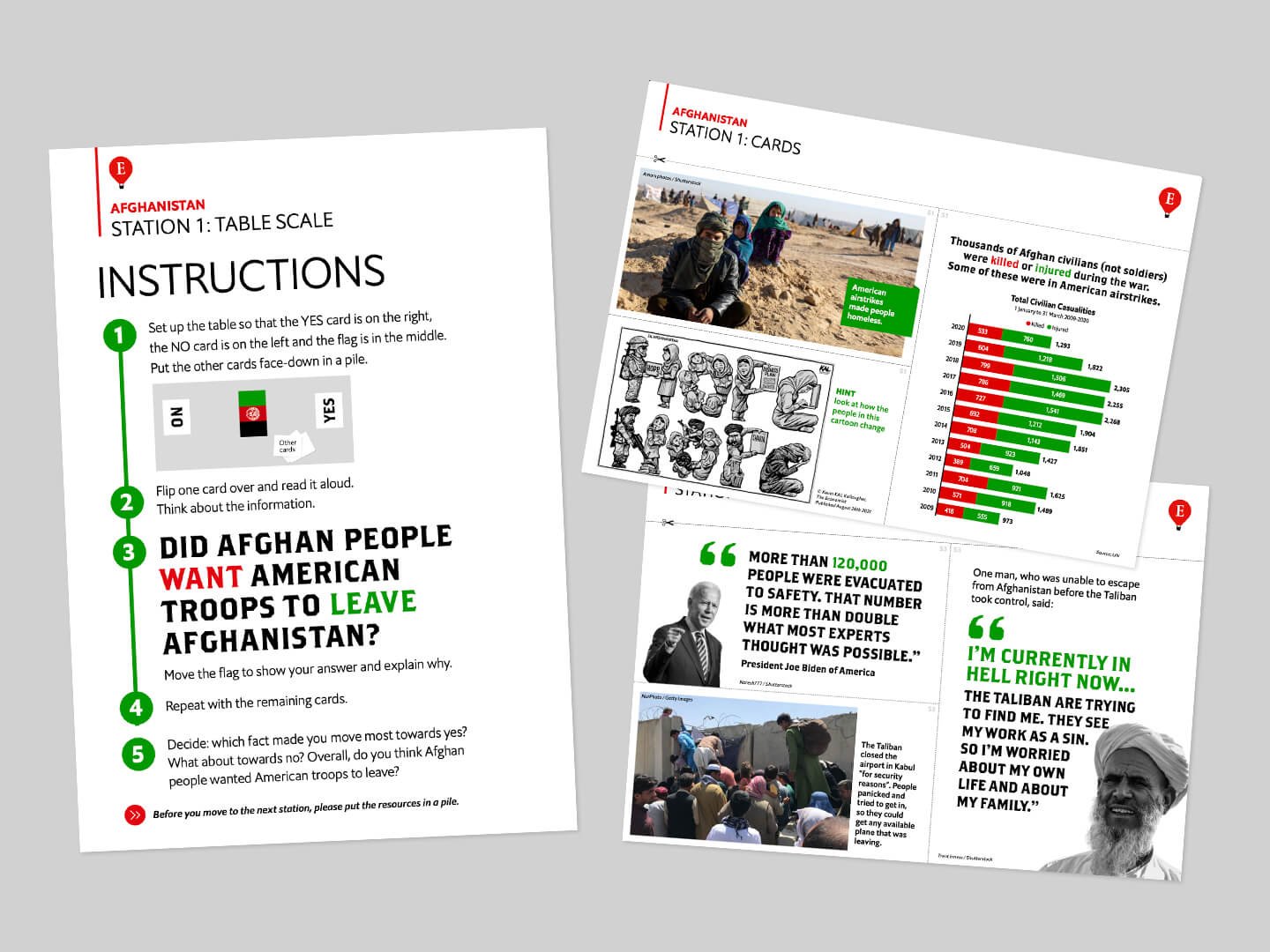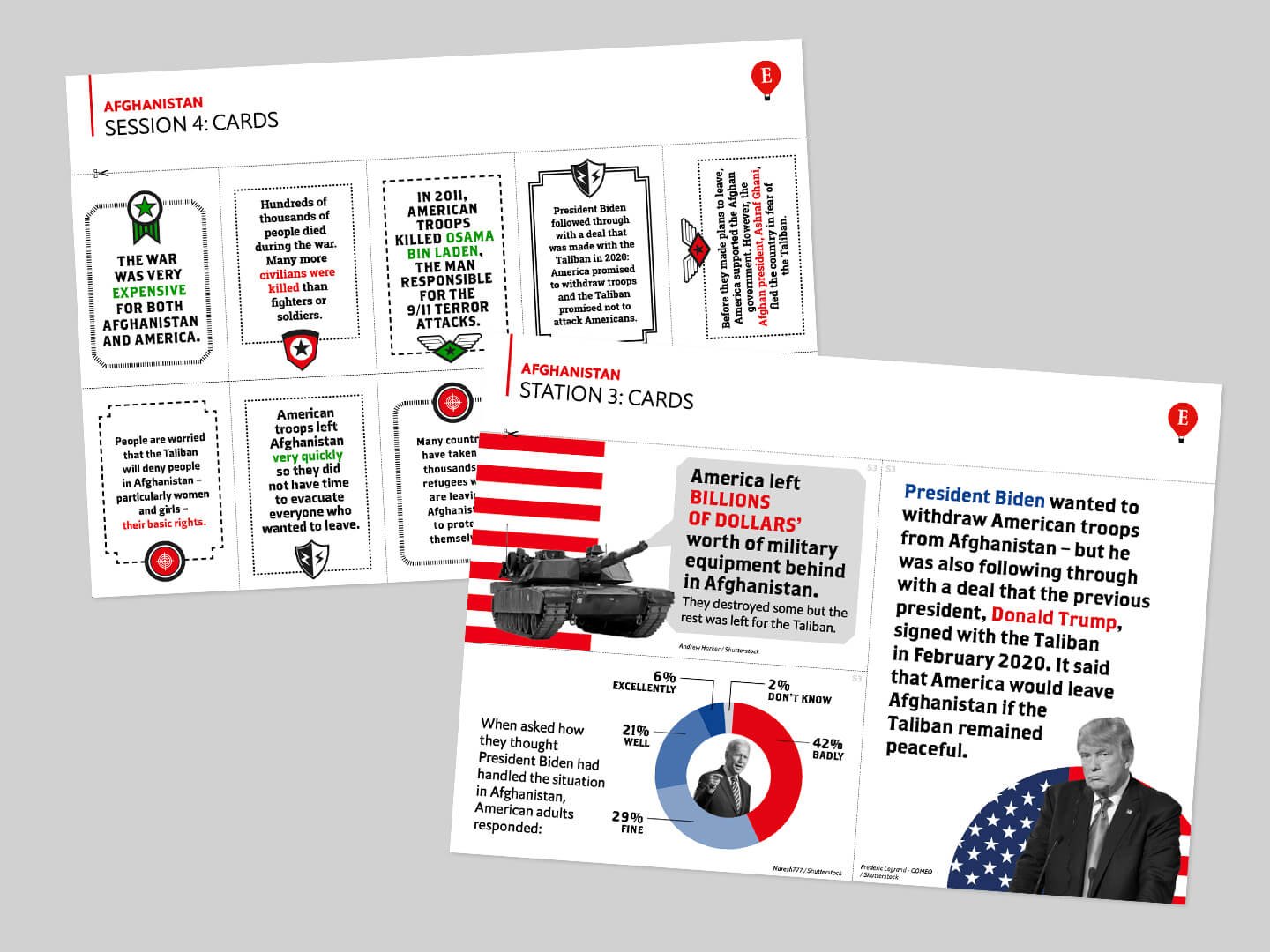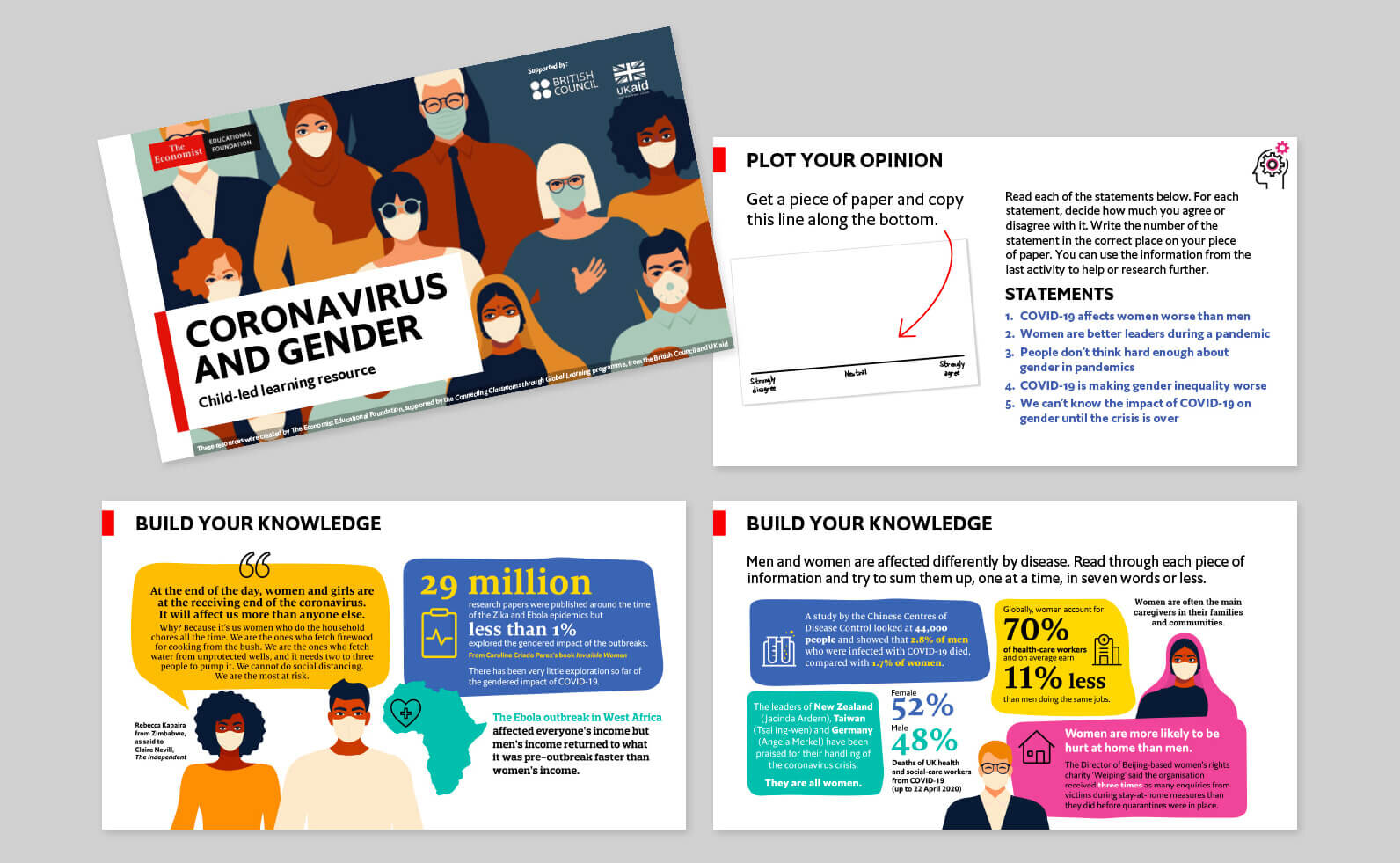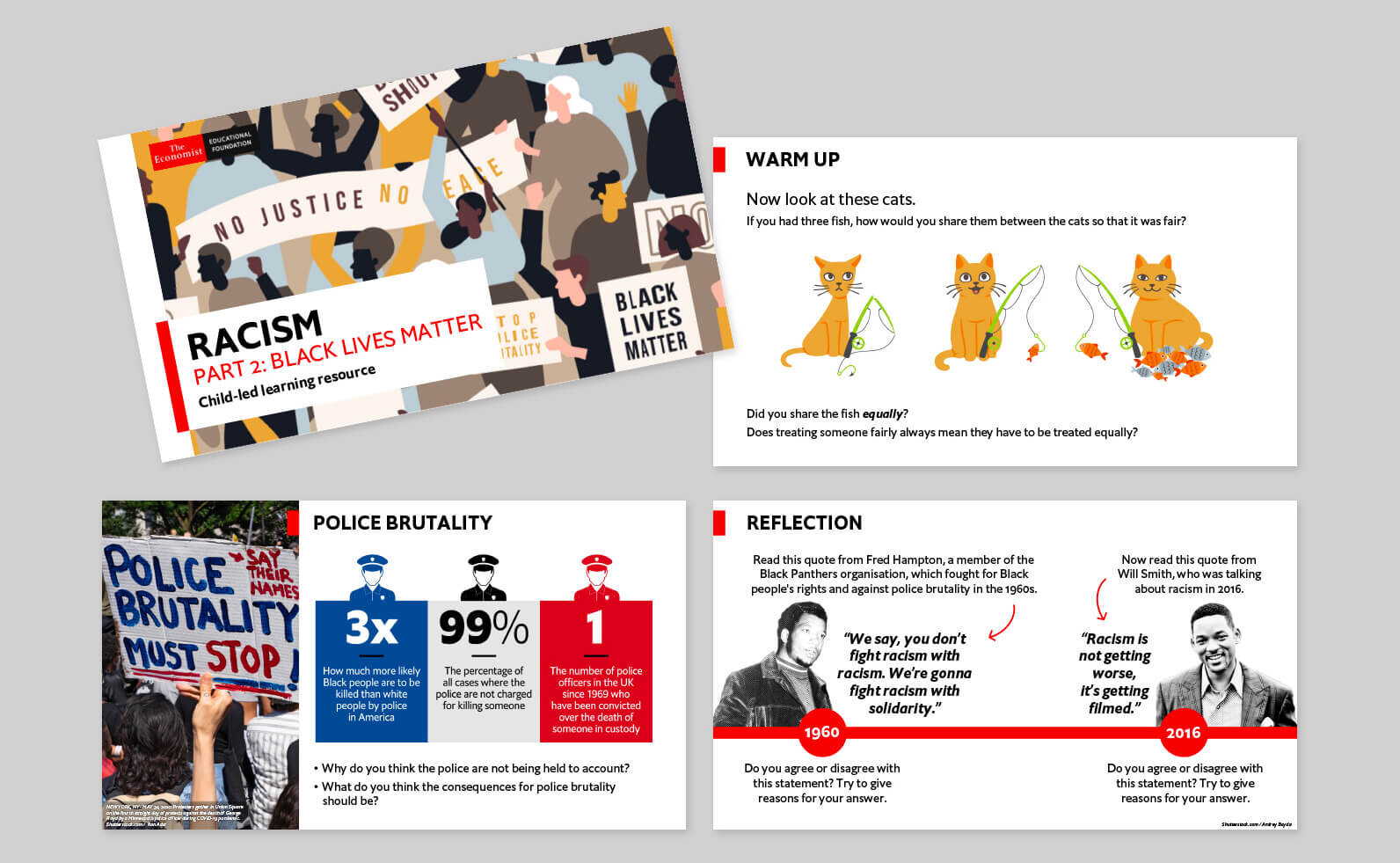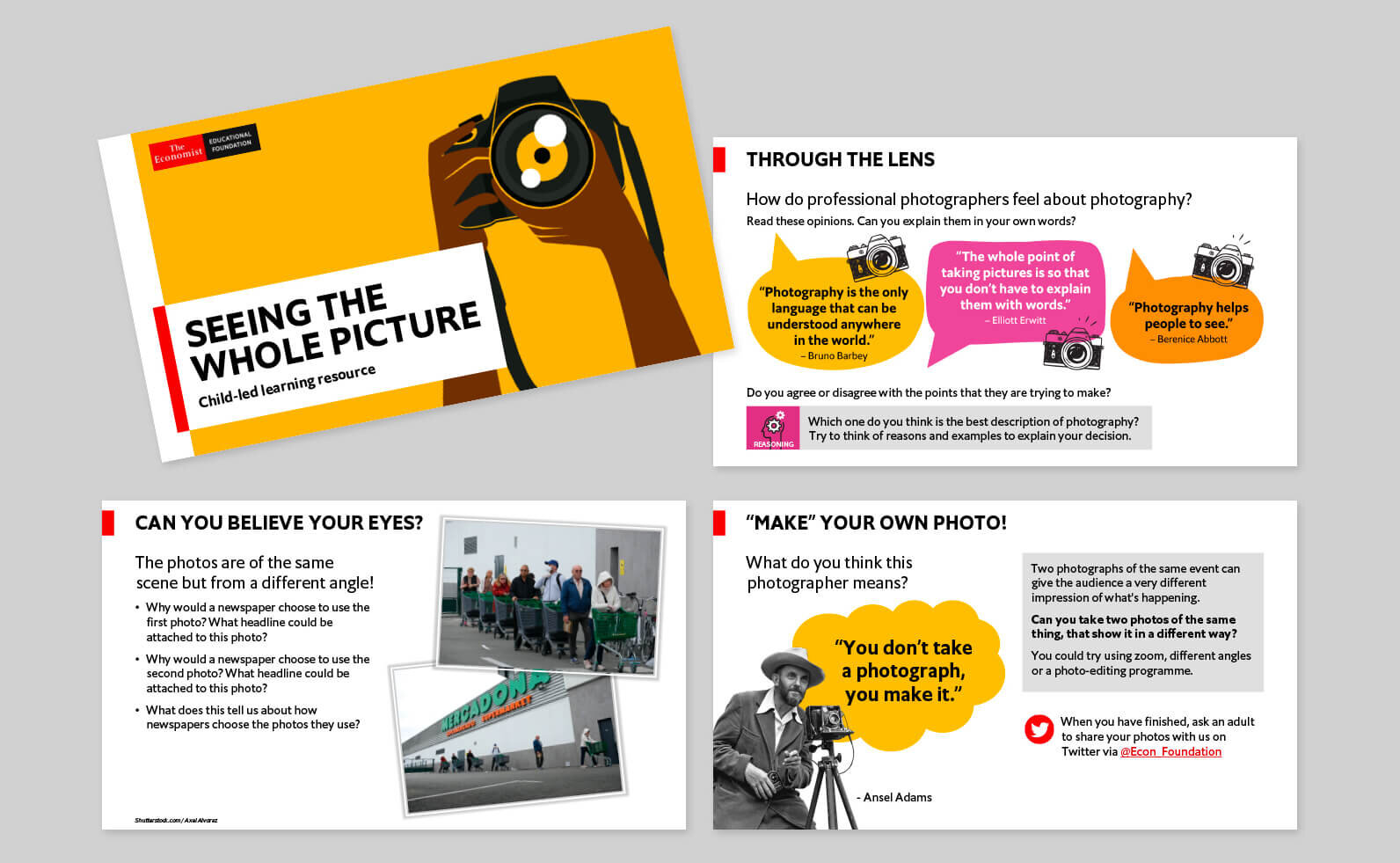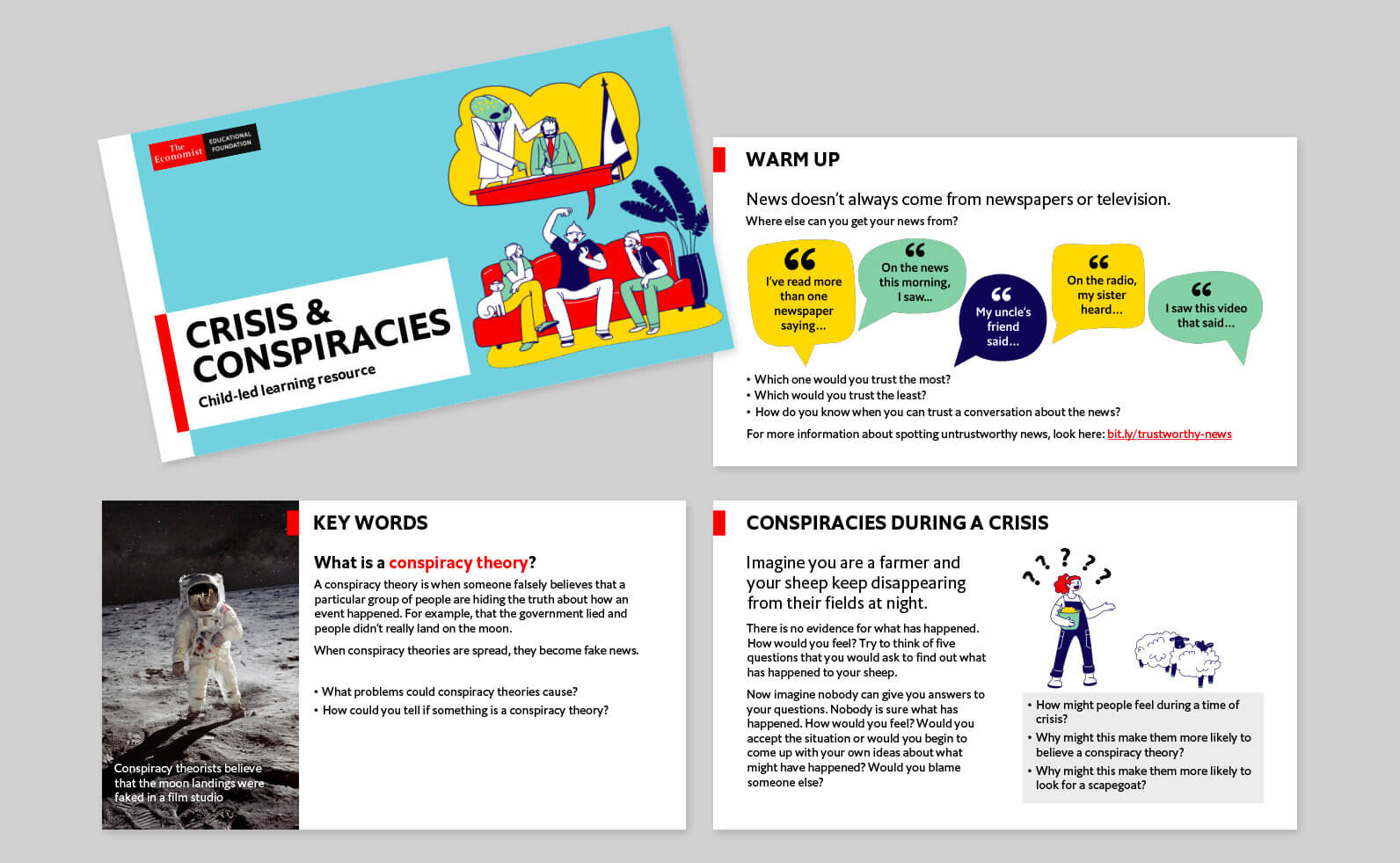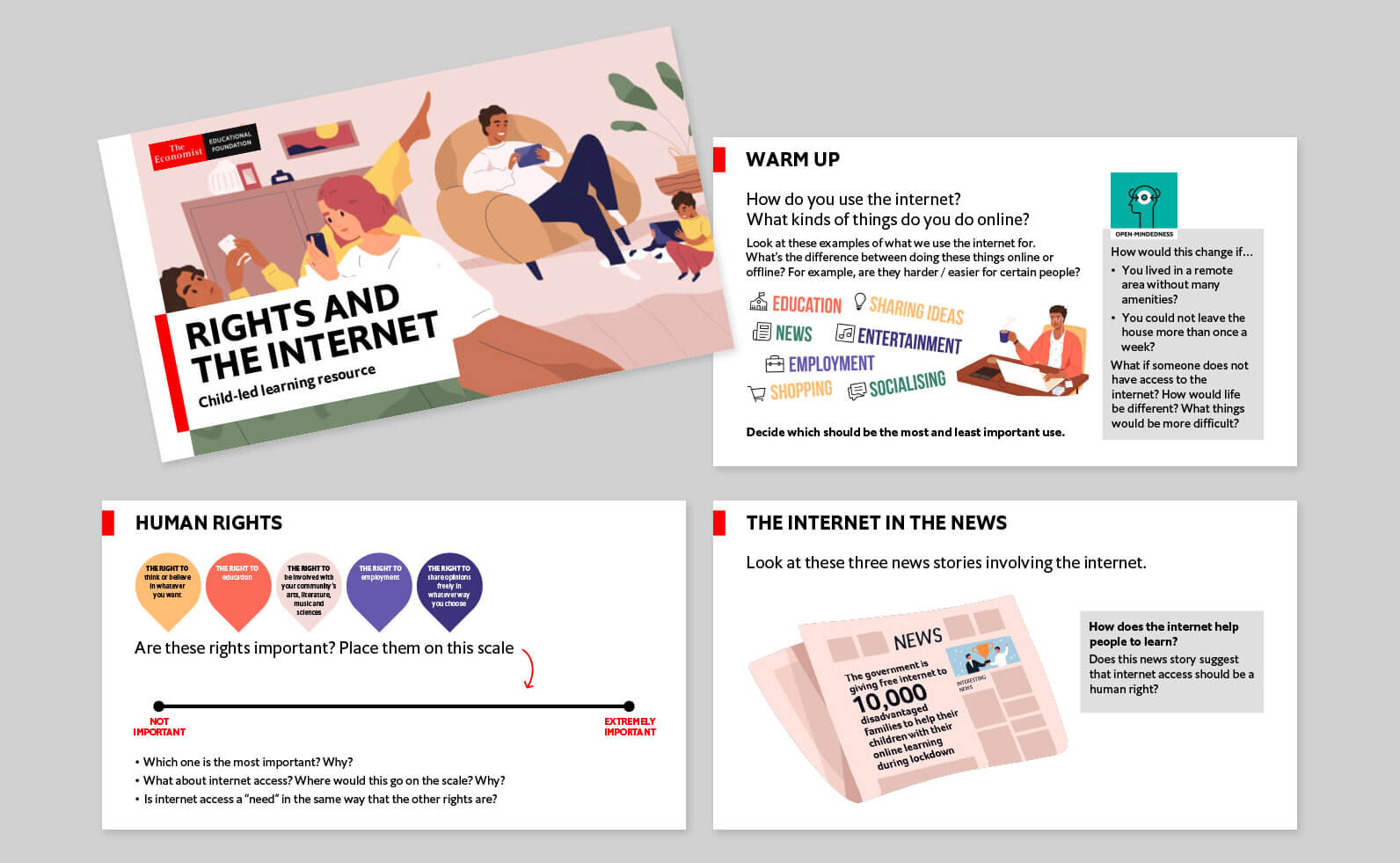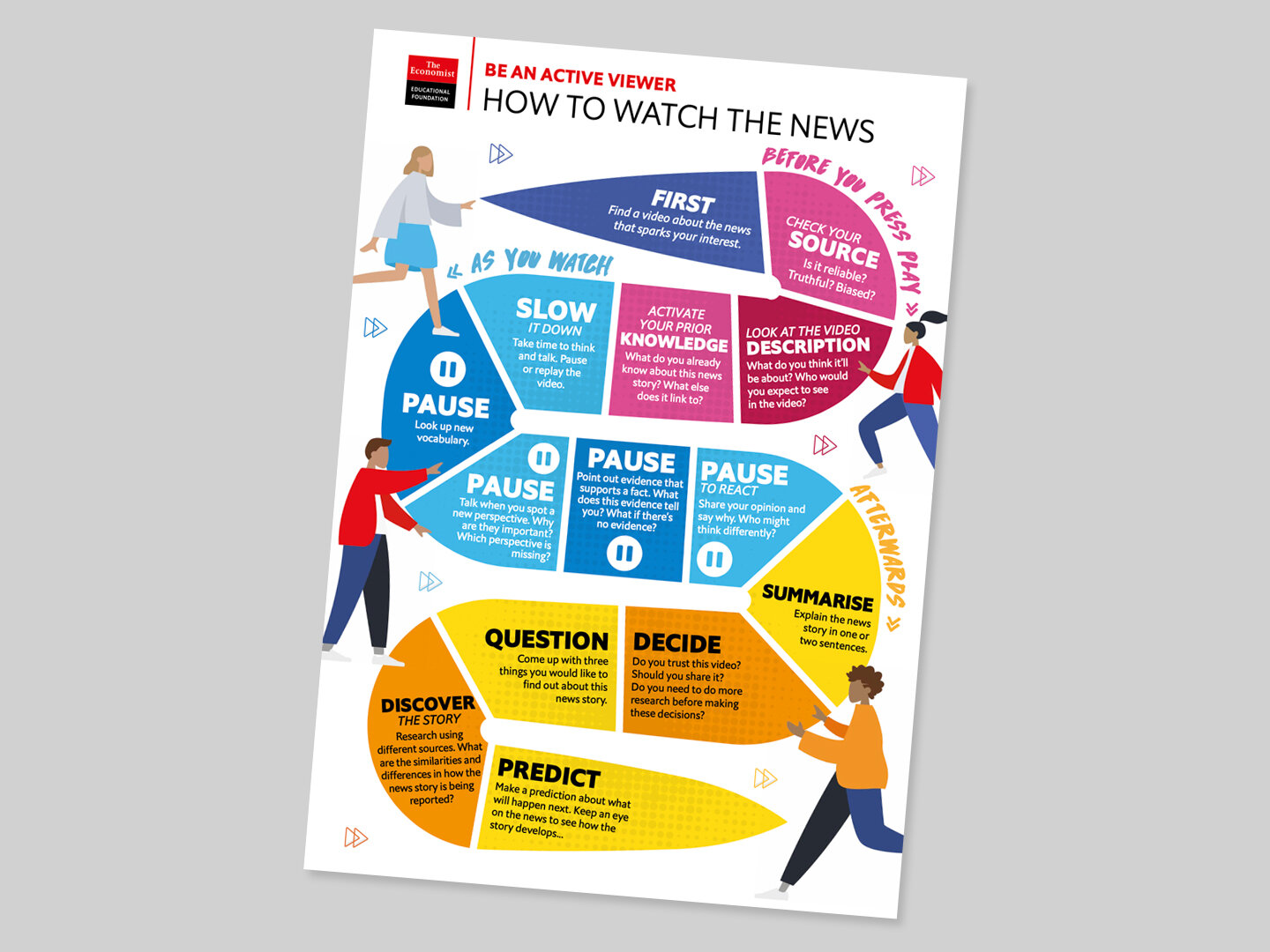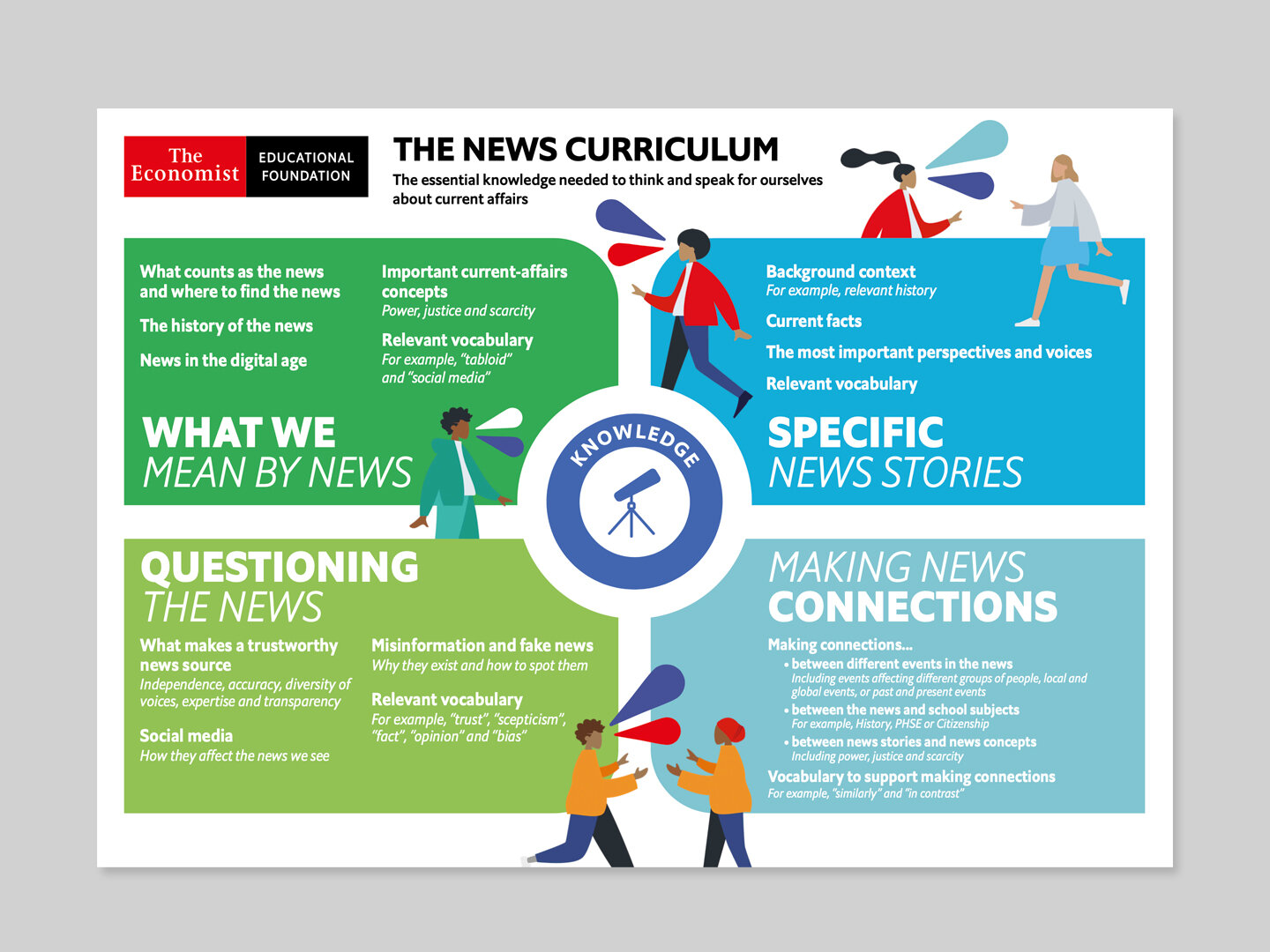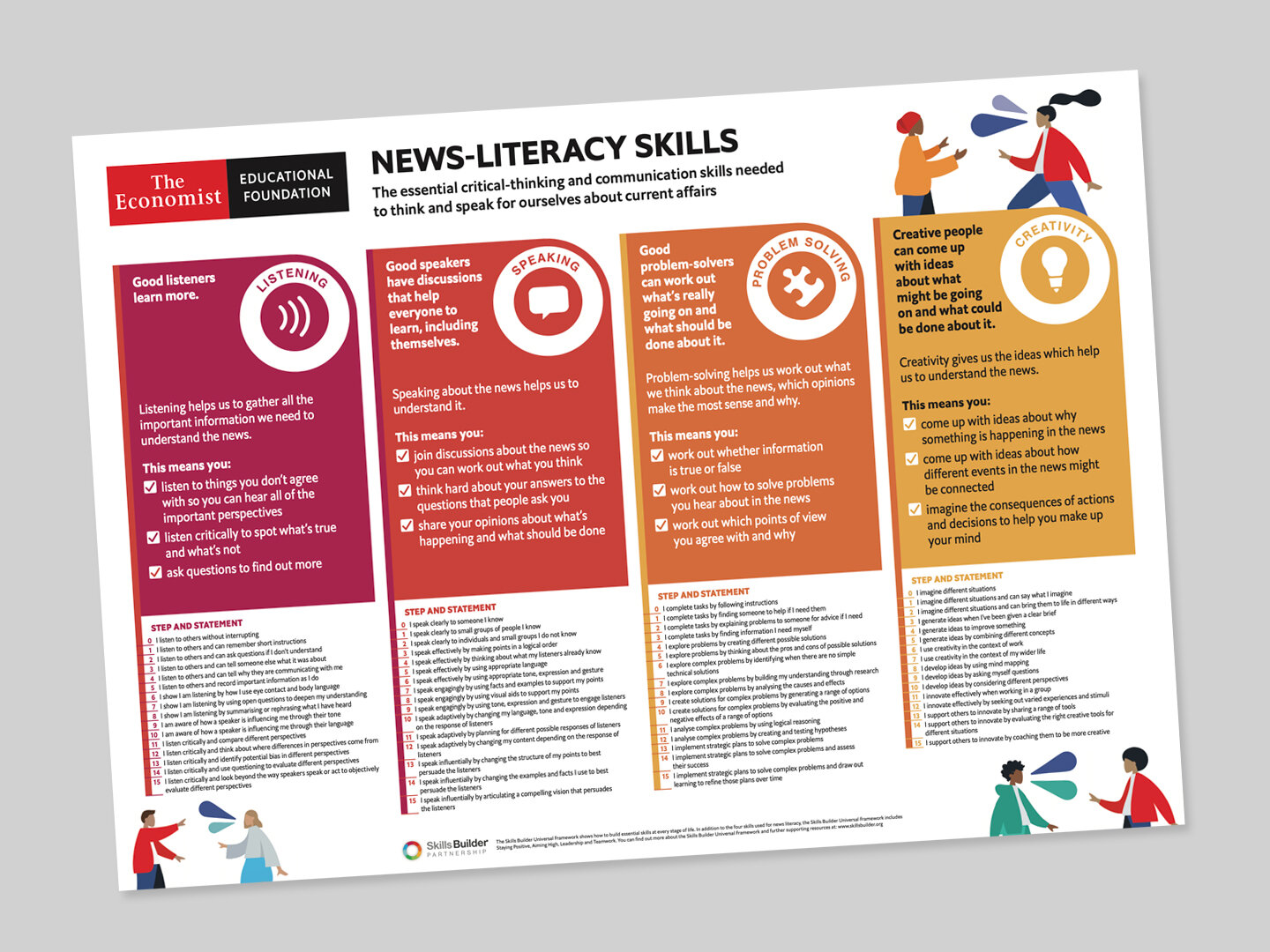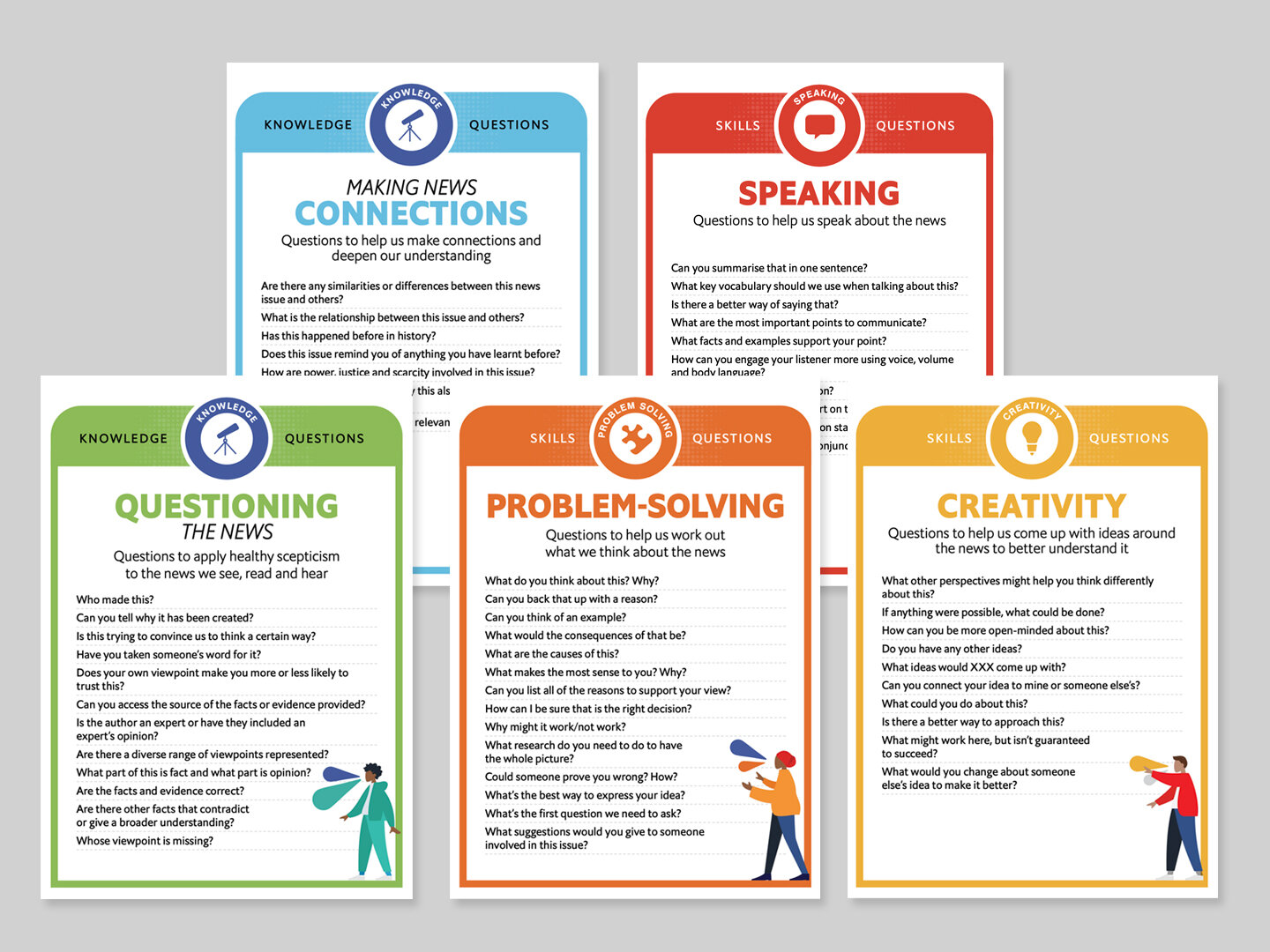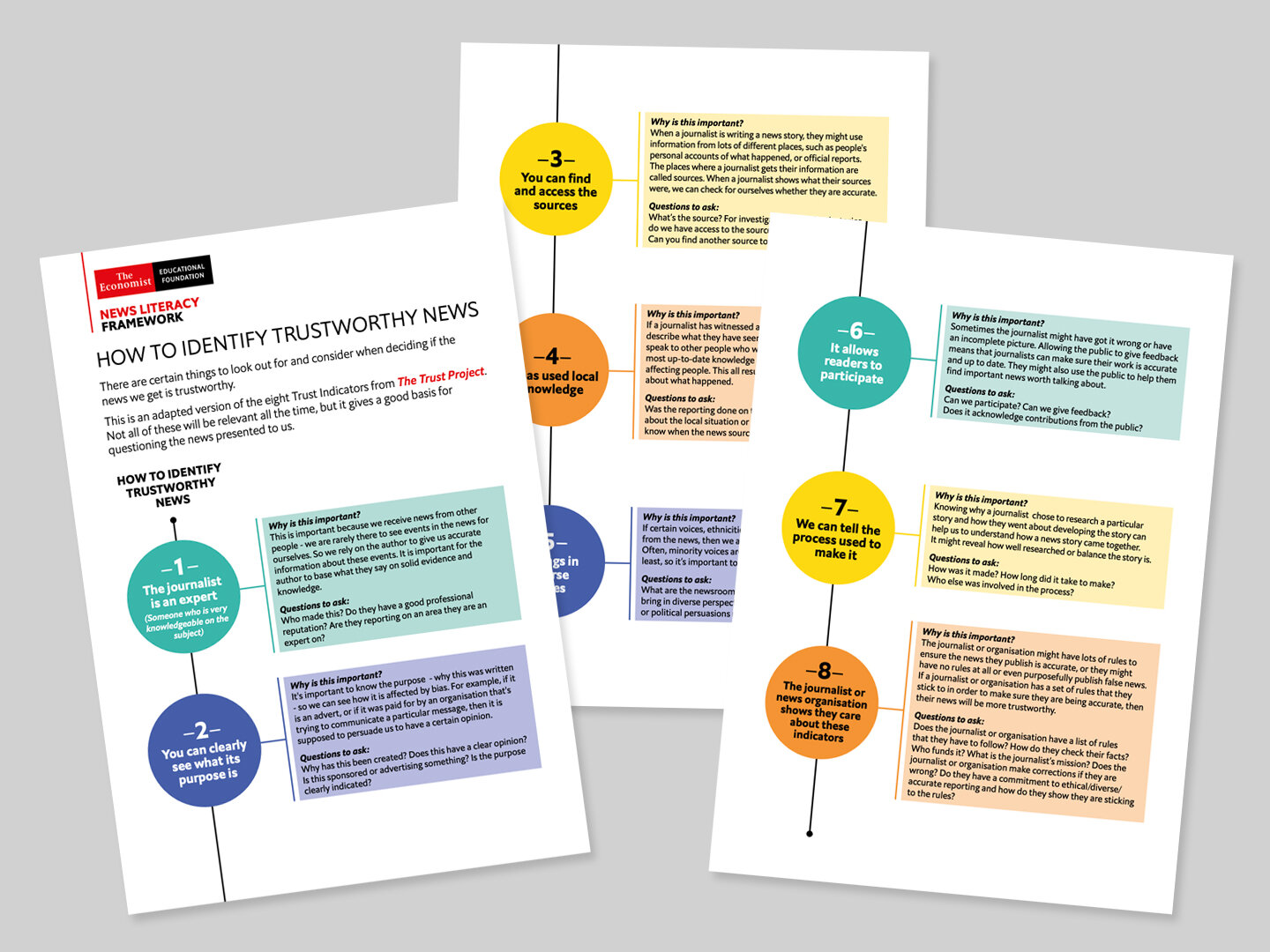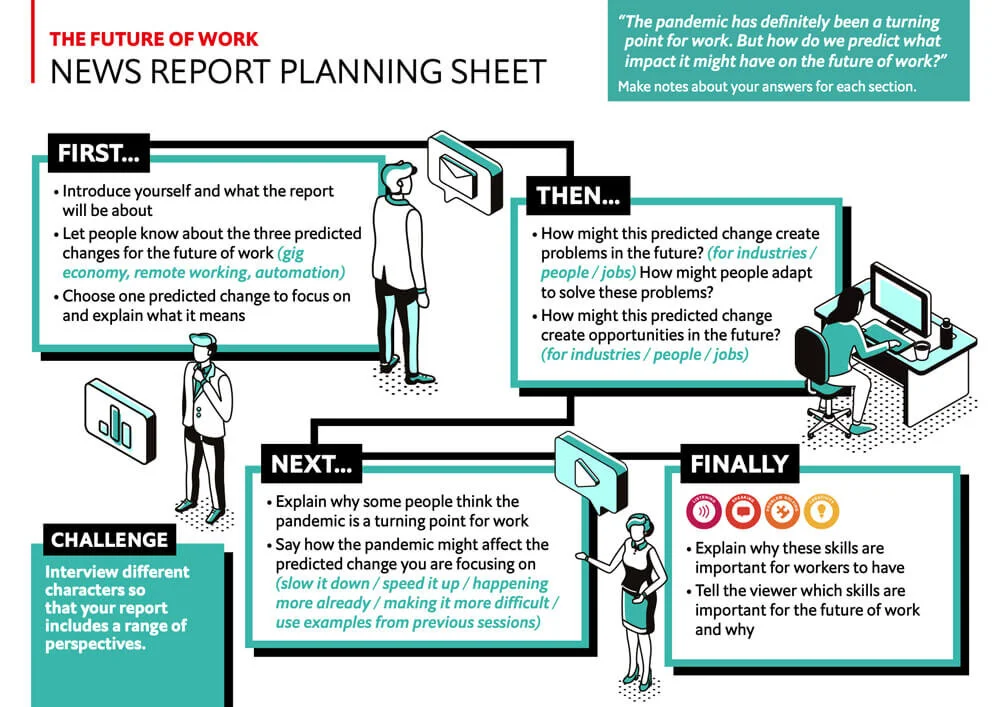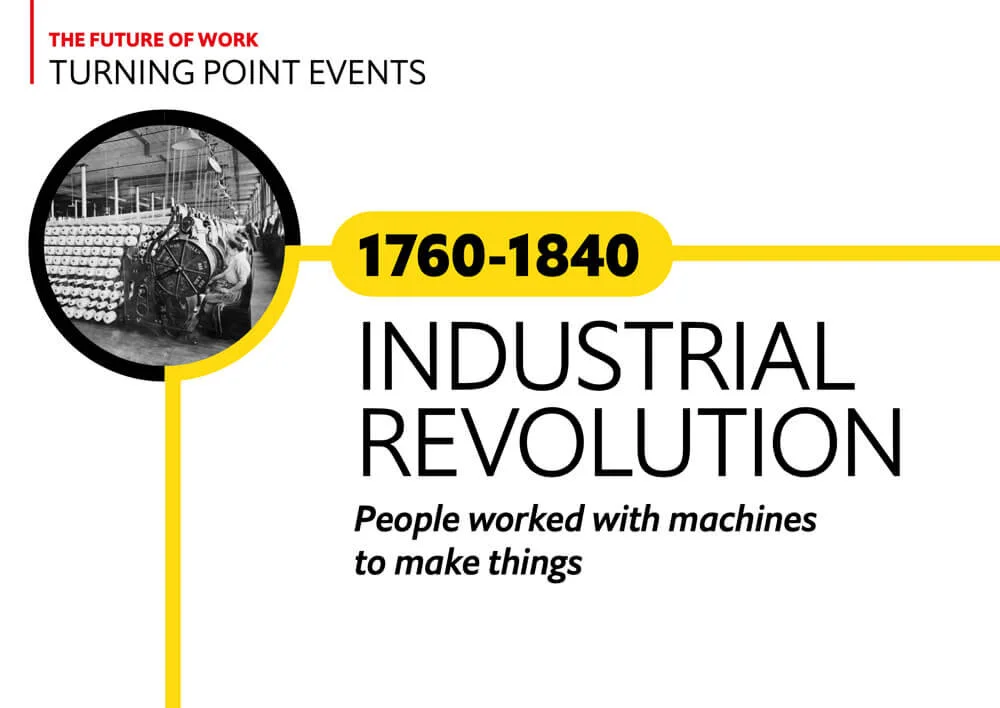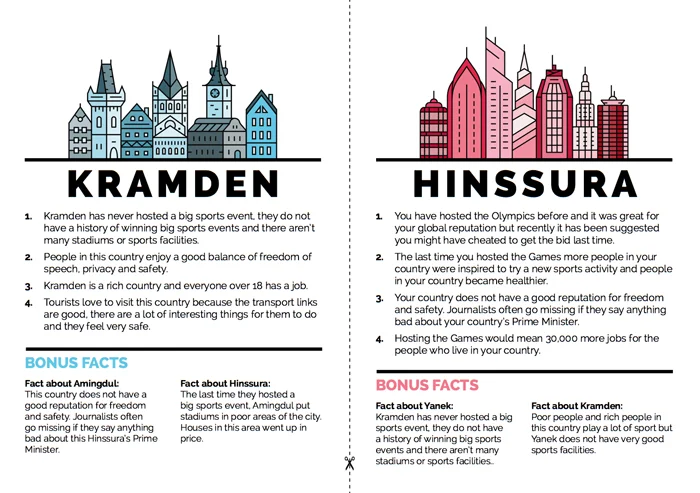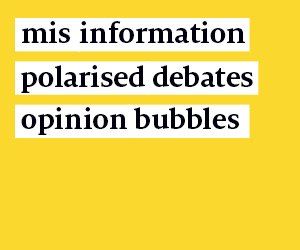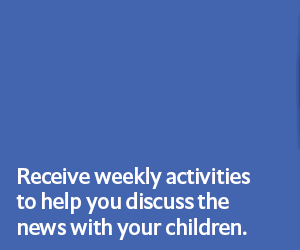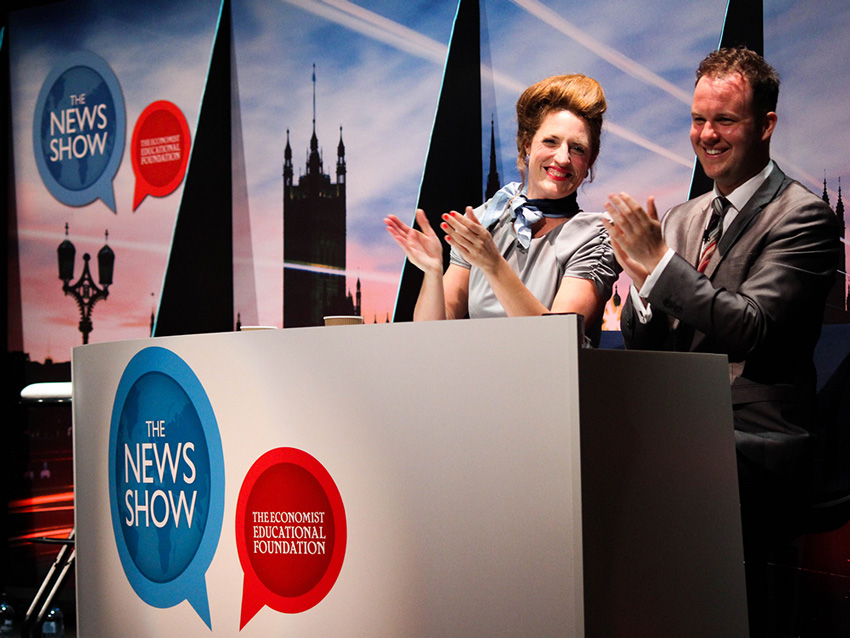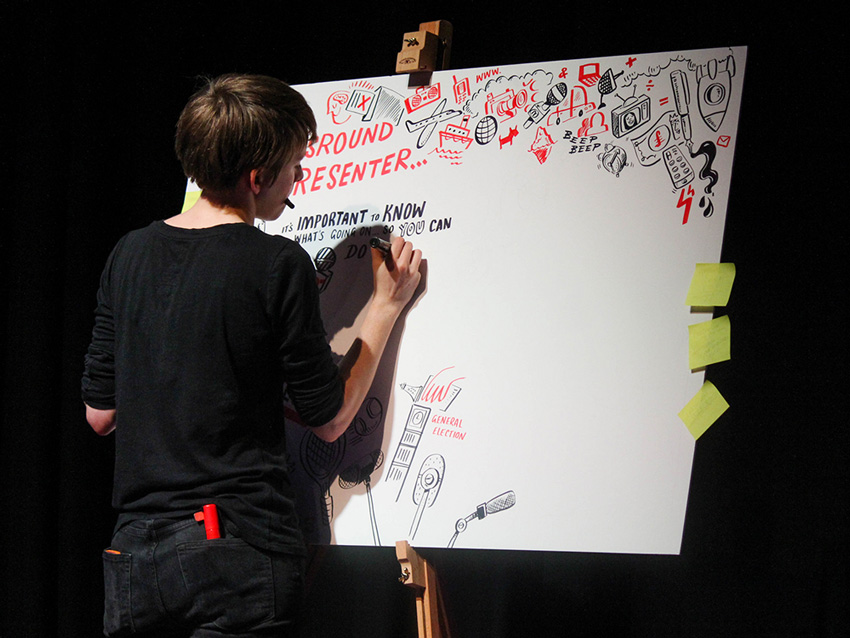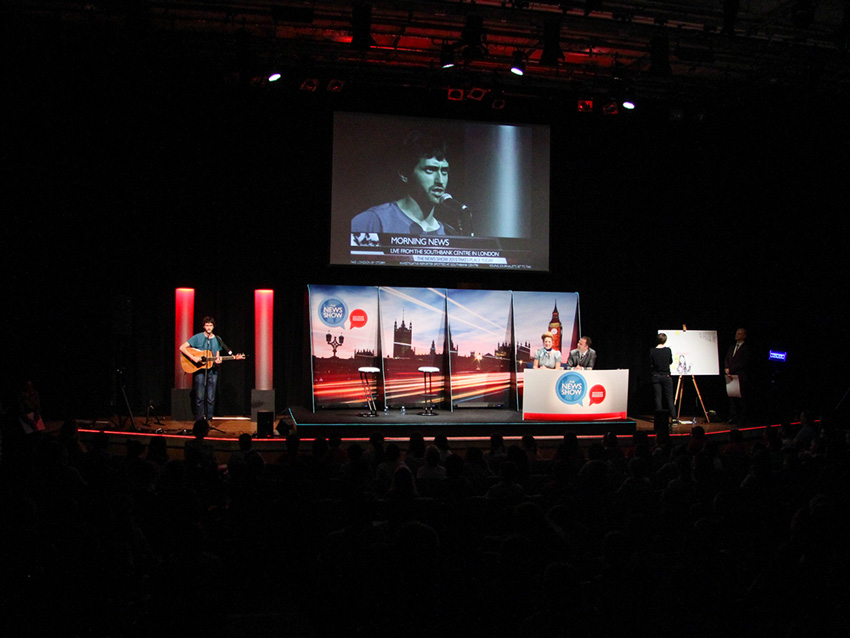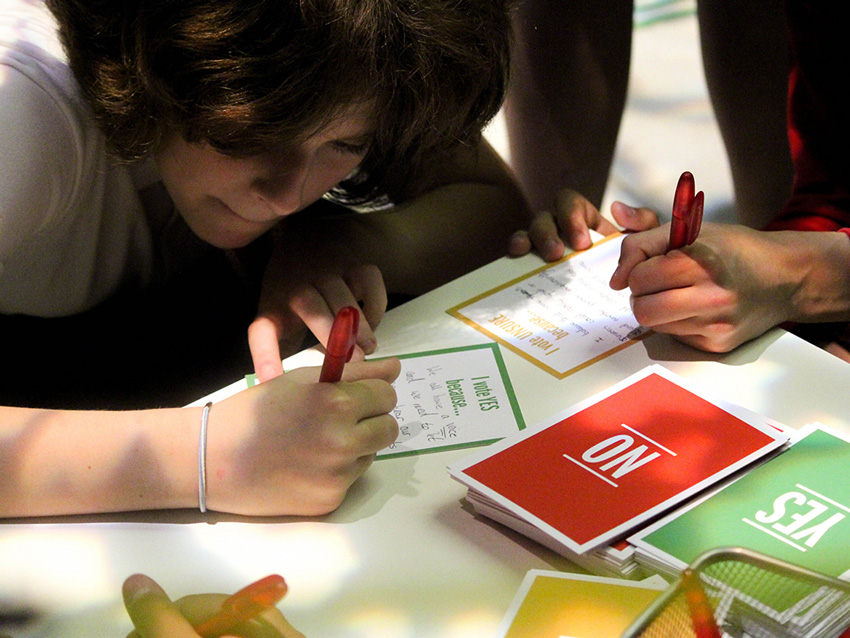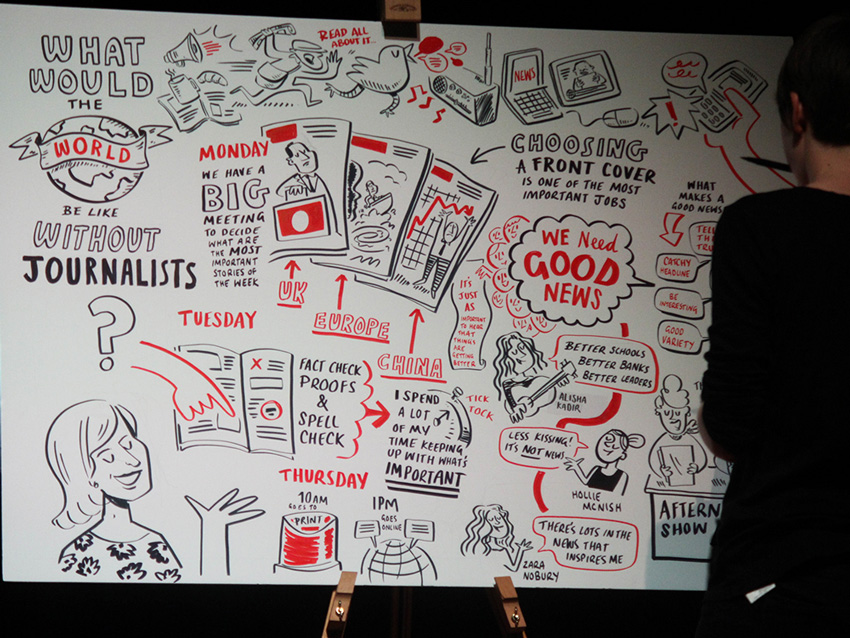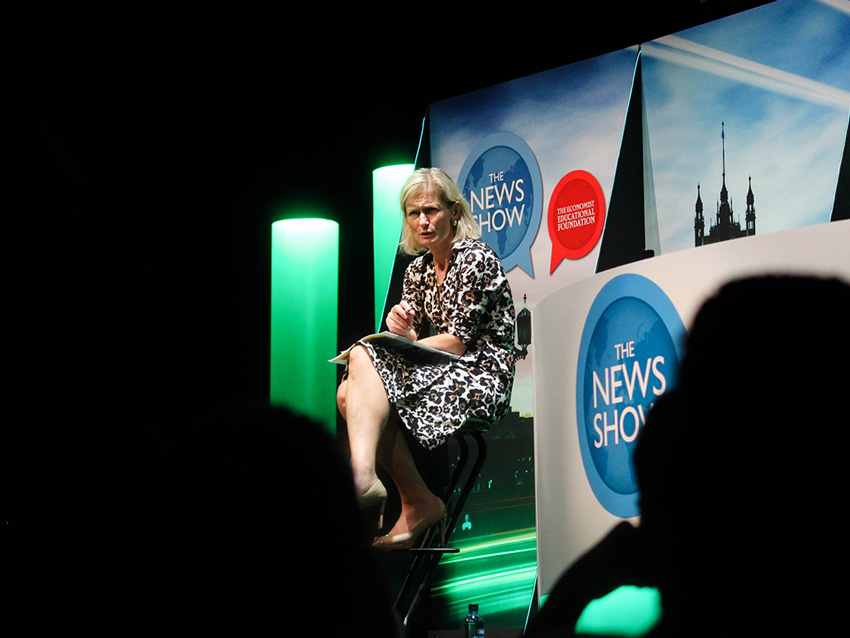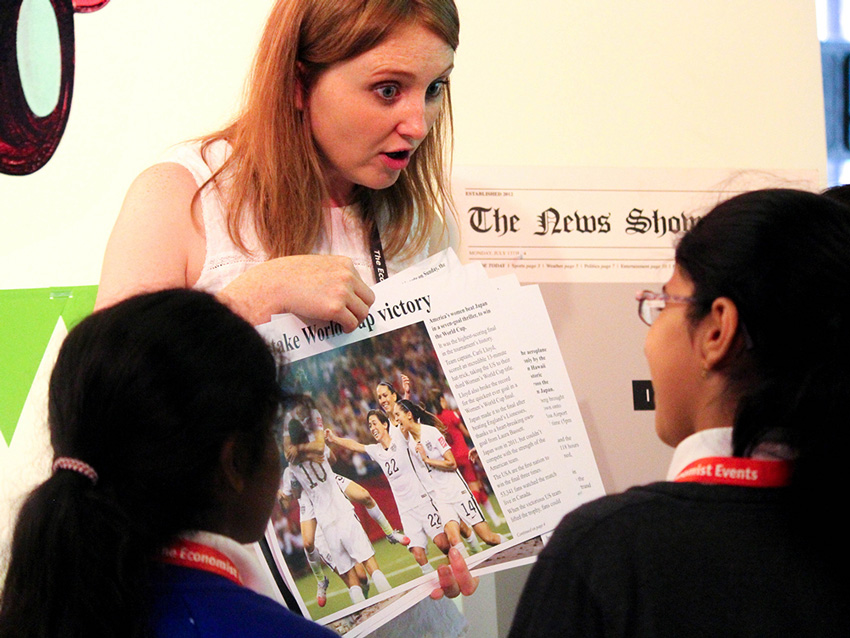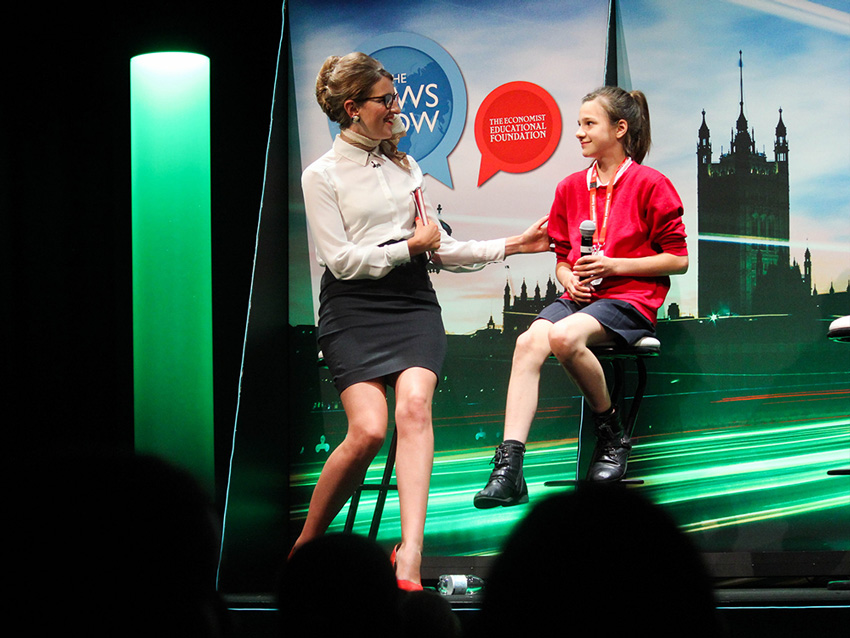The Economist Educational Foundation
The Economist Educational Foundation
2013 – ongoing // economistfoundation.org
In a divisive world, young people need the skills to identify fake news, make up their own minds and have their say about the big issues affecting their lives. The Economist Educational Foundation empowers young people with the skills to challenge misinformation and enables inspiring discussions about the news to take place in schools.
In 2012, a friend set up the Foundation from within The Economist and I’ve been involved ever since. To start with I volunteered by designing logos and helping to stage their annual event. As the Foundation has grown, so has their need for design. I now provide freelance design work across range of projects including impact reports, learning resources, educational content and website design.
Impact report
Making an impact on young people’s critical thinking and news literacy. The Foundation is committed to measuring their impact as rigorously as possible and learning from what they find. The 2021-22 impact report dives into the qualitative and quantitive data to explore this. Coronavirus restrictions have meant that it wasn’t possible to visit schools and photograph the Foundation programmes in action – for the impact report, this meant reusing a lot of old photography. To counteract this, I used block colours and duotones to keep things fresh.
Topical Talk Projects
Topical Talk gives teachers free teaching resources for weekly classroom discussions about current affairs. The adaptable activities help the news make sense for learners aged 9+. A Topical Talk Project lets learners discuss one news-issue in depth over five weeks, and sequenced session plans build towards a creative Final Piece. Every Project is designed to make the teacher’s job as easy as possible, with fun games and activities, easy-to-follow lesson plans, and clear links to curriculum and skills. Not only that, but every Project is fact-checked and edited by The Economist’s expert journalists.
Designing a Project is challenging. Because of the timely subject matter and the tight editorial process, the whole thing has to be done over three days, from initial concepts to published resource.
Home-learning resources
When coronavirus closed schools in March 2020 and thousands of children were forced to start learning from home, the Foundation took the immediate step to produce weekly news resources for home-learning. These were designed to be suitable for a broad age-range, and to be used by teachers, parents and individual students. The resources tackled a wide-range of important topics like racism and the Black Lives Matter protests, to covid-19 and its effect on wellbeing and gender. The resources received positive feedback from around the world with the Foundation gaining over 13,000 subscribers and seeing 60,000 downloads in just five months.
News literacy
News literacy is the ability to think and speak for ourselves about current affairs. In order to do this, we need to develop the knowledge and skills needed to form an accurate picture of what is happening in the world and justify opinions about the news with sound arguments. The news literacy model has been created by The Economist Educational Foundation as a way to support the development of news literacy in young people. It outlines the knowledge and skills needed to engage with the news.
The Burnet News Club
The Burnet News Club enables young people to develop news literacy by being part of a unique kind of school news club, exploring mind-stretching topical issues. Participating teachers get everything they need to facilitate in-depth discussions between 8-15 year-olds about an issue in the news for six weeks. Each issue is different and has different design challenges. The resources need to be easy to print and cut up for teachers, and highly visual and engaging for young people. The Foundation doesn’t talk down to its club members, and they don’t design down to them either, so the resources never look childish.
EXAMPLE RESOURCES FROM RECENT ISSUES
Adverts
A selection of adverts that have featured in The Economist and on Economist.com
The News Show
The 2014 event turned 300 primary school children into young journalists, and invited them along to The News Show. The Foundation worked with PunchDrunk to put on a live news show to inspire the children to be more interested in current affairs by giving them a magical, unforgettable experience that shows how exciting the news can be.
